In the spotlight

SLDP is proud to share with you a selection of activities we have implemented and have been involved in since 2014.
Activities
2025
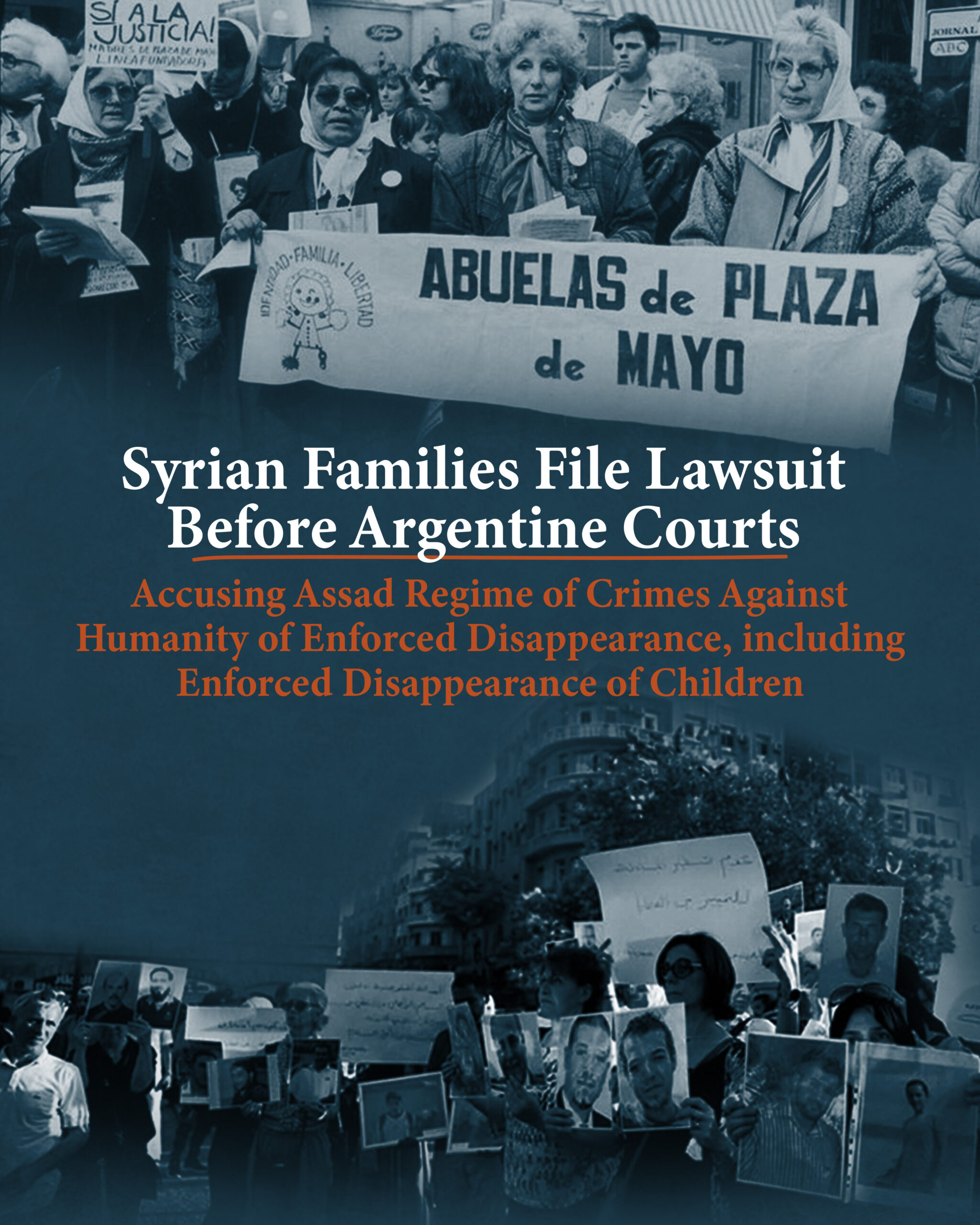
Syrian victims’ associations the Truth and Justice Charter, the Association of Detainees and the Missing of Sednaya Prison, and the Syrian Legal Development Programme (SLDP), with legal support from Estudio Durrieu, have filed a criminal complaint before Argentina’s federal courts under the principle of universal jurisdiction. The complaint calls for the opening of an investigation into the responsibility of Bashar al-Assad, Asma’a al-Assad, and key Syrian regime officials for crimes against humanity of enforced disappearance, with a particular focus on the systematic disappearance of children, including arbitrary detention, separation from families, and the long-term concealment of their identities, fate, and whereabouts. Argentina’s historic leadership in prosecuting enforced disappearance and child identity suppression provides a powerful legal and moral foundation for advancing accountability for Syrians. This step is part of a broader, ongoing struggle by Syrian families and organisations to achieve truth, justice, and accountability, in Syria and beyond.
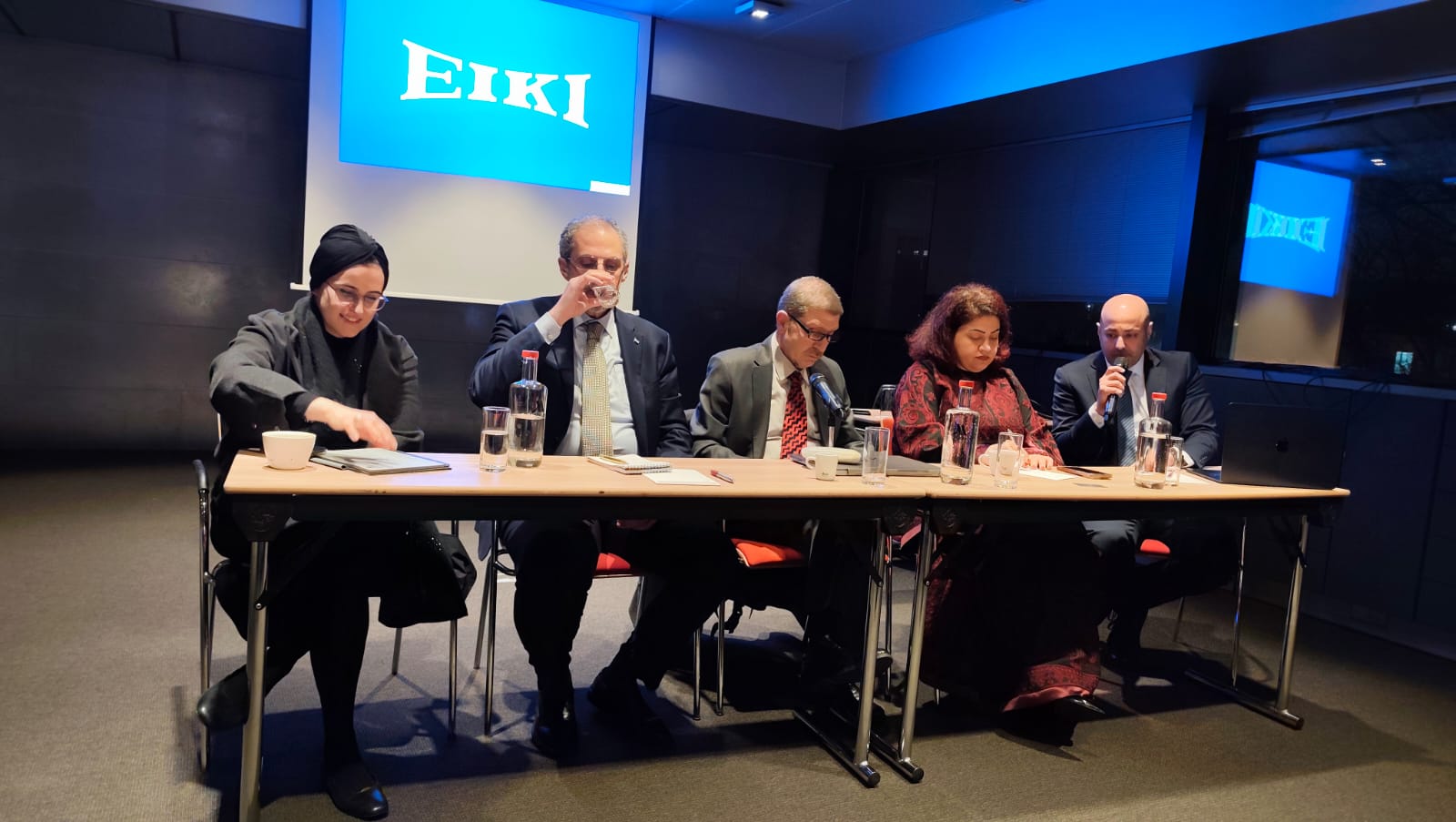
SLDP and partner organizations held a critical side event, organized alongside the Conference of the States Parties to the Chemical Weapons Convention (OPCW), coinciding with the International Day for the Remembrance of the Victims of Chemical Weapons on 30 November. The event, attended by the Permanent Representative of the Syrian Arab Republic to the OPCW, highlighted the vital role of civil society and international cooperation in transforming Syria’s chemical weapons challenges into a pioneering model for accountability and non-recurrence. In this context, 70 Syrian civil society organizations presented a set of recommendations addressed to the Syrian government, the National Transitional Justice Commission, and the States Parties to the Convention. These recommendations aim to ensure comprehensive accountability for the Assad regime’s chemical weapons crimes and advocate a transitional justice approach centered on the rights, dignity, and well-being of victims and survivors. The organizing group also shared recommendations (developed by SLDP) on behalf of the signatory organizations with OPCW member states, relevant international missions on Syria, and other concerned stakeholders. The full recommendations are available in both Arabic and English.
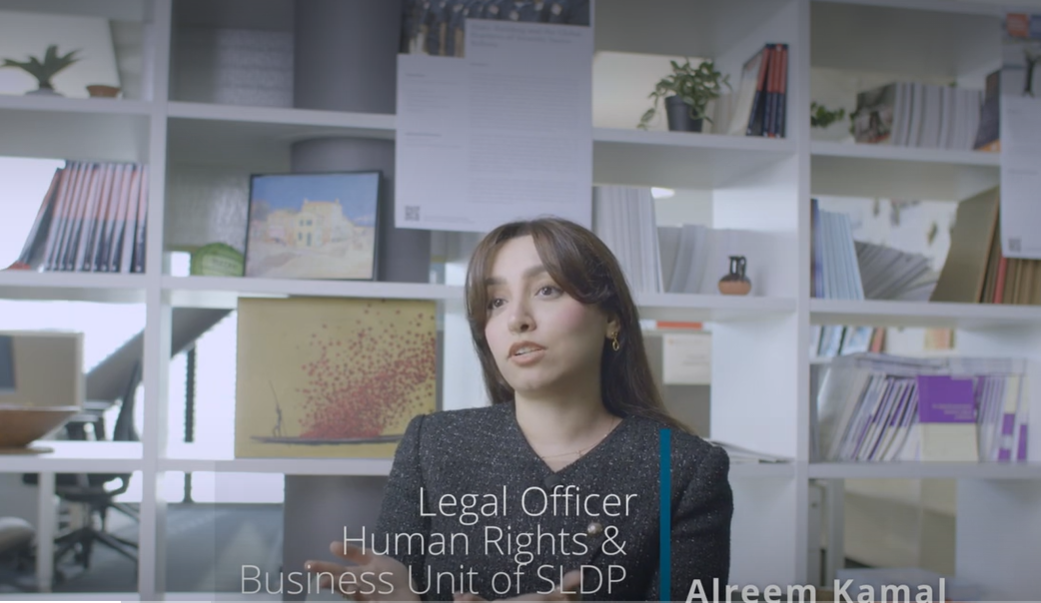
HRBU’s Legal Officer participated in a video targeting investors produced by PeaceNexus and supported by the Business and Conflict Community of Practice. In it, she discussed business’ responsibilities in conflict-affected and high risk areas, implementing heightened HRDD, effectively navigating the risk landscape, and managing responsible exits. The video premiered on 27 November at a Business and Conflict Community of Practice works.
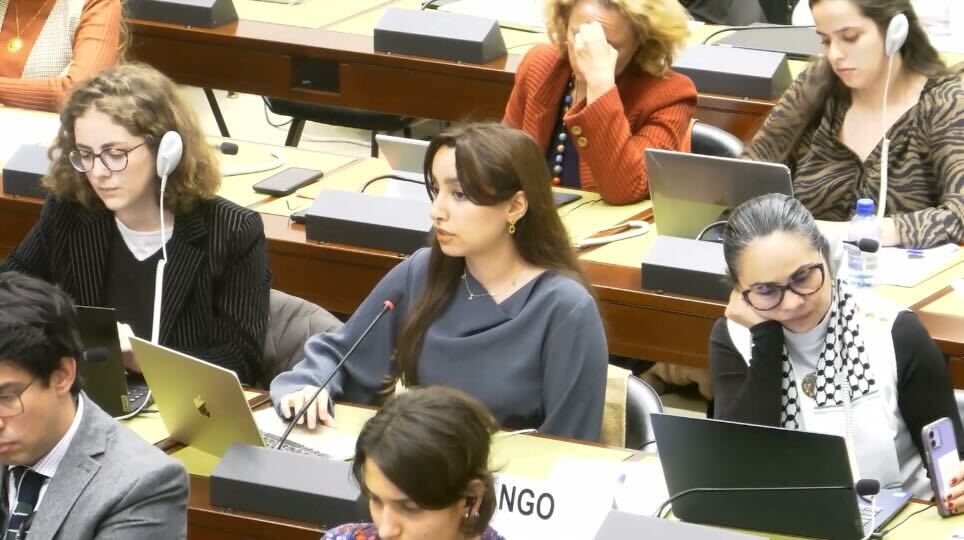
SLDP participated in the 11th Session of the Open-Ended Intergovernmental Working Group (OEIGWG) convened to negotiate an international legally binding instrument aimed at regulating transnational corporate activity. Corporate activity in conflict-affected and high-risk contexts often escapes oversight, perpetuating rights abuses, inequality, and impunity. HRBU’s Legal Officer delivered interventions on several draft articles, including those pertaining to mutual legal assistance, international cooperation, and jurisdiction. We urged states to take decisive action to ensure that the LBI effectively addresses the structural causes of corporate abuses and to advance the establishment of strong legal frameworks for accountability. As far as we are aware, SLDP is the first Syrian NGO to take part in these negotiations. Read the ‘Red Lines’ policy brief developed by the ESCR-Net – International Network for Economic, Social & Cultural Rights of which SLDP is a member, to understand our key demands.
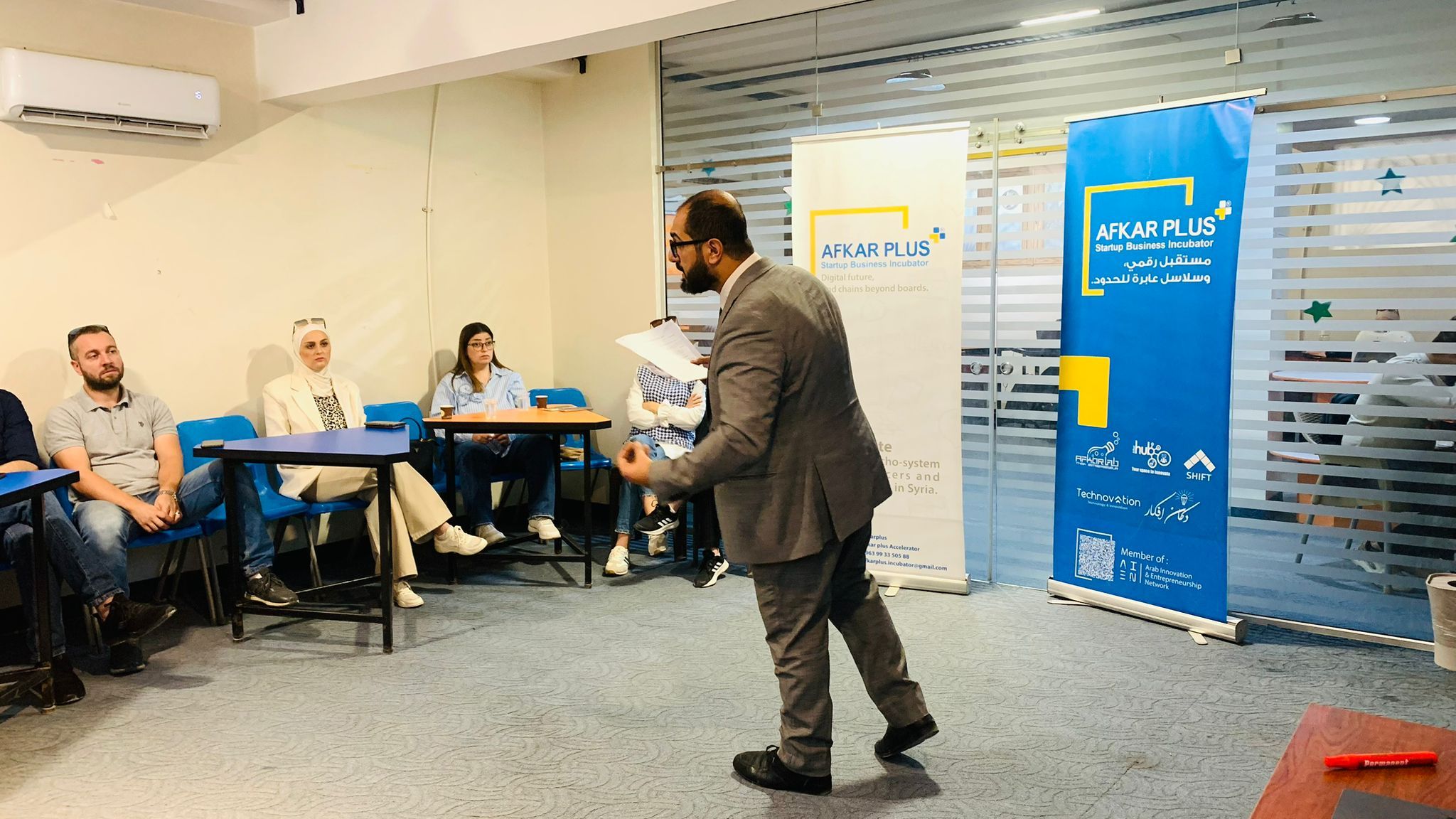
The Syrian Legal Development Programme, through its Business and Human Rights Unit and in cooperation with Afkar Plus at its headquarters in the city of Hama, organized a specialized training titled “Business and Human Rights in Syria.” The training targeted businesspeople who are members of the Hama Chamber of Commerce and Industry. The training aimed to enhance participants’ understanding of the role of businesses in respecting human rights within the Syrian context, and to empower them with practical tools to help integrate human rights principles into economic and development practices, thereby contributing to building a more responsible and equitable business environment in Syria. The training was delivered by Dr. Yousef Razouq, Legal Officer in the International Law Support Unit at the Programme, who addressed concepts of international human rights law and their relation to the business sector, in addition to discussing practical and applied case studies within the Syrian context. Through its activities and programs, SLDP continues to work on raising awareness of international law and human rights, building the capacities of organizations and local actors to ensure justice and accountability, promote human dignity, and support good governance.
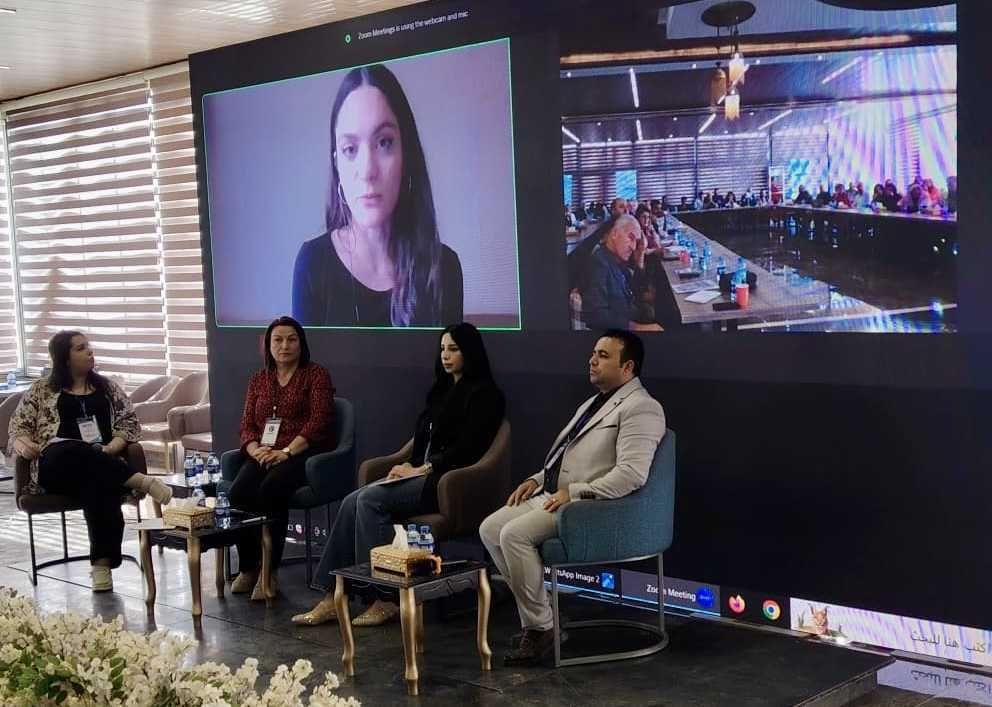
SLDP participated as speaker in the Fourth Annual Forum for Victims in Northern Syria, organised by Synergy organisation. Reresented by the Head of the International Law Support Unit Veronica Bellintani, SLDP’s intervention focused on the centrality of victims’ participation within transitional justice processes, not merely as a procedural element, but as a right in itself under international law, which the State and all relevant actors are obliged to respect, protect, and fulfil. Victims’ participation constitutes both a stand-alone right and a precondition for the effective realization of other rights, including the rights to justice, truth, and reparation. These processes must therefore be designed and implemented in accordance with the needs, demands, and perspectives of victims, to ensure that transitional justice genuinely delivers substantive and transformative justice. Veronica underscored the importance of acknowledging victims as victims, irrespective of the identity of the perpetrators, and emphasized that such acknowledgment, particularly when carried out at a collective and institutional level, forms a foundational pillar for sustainable civil peace and rebuilding trust between victims and the State.
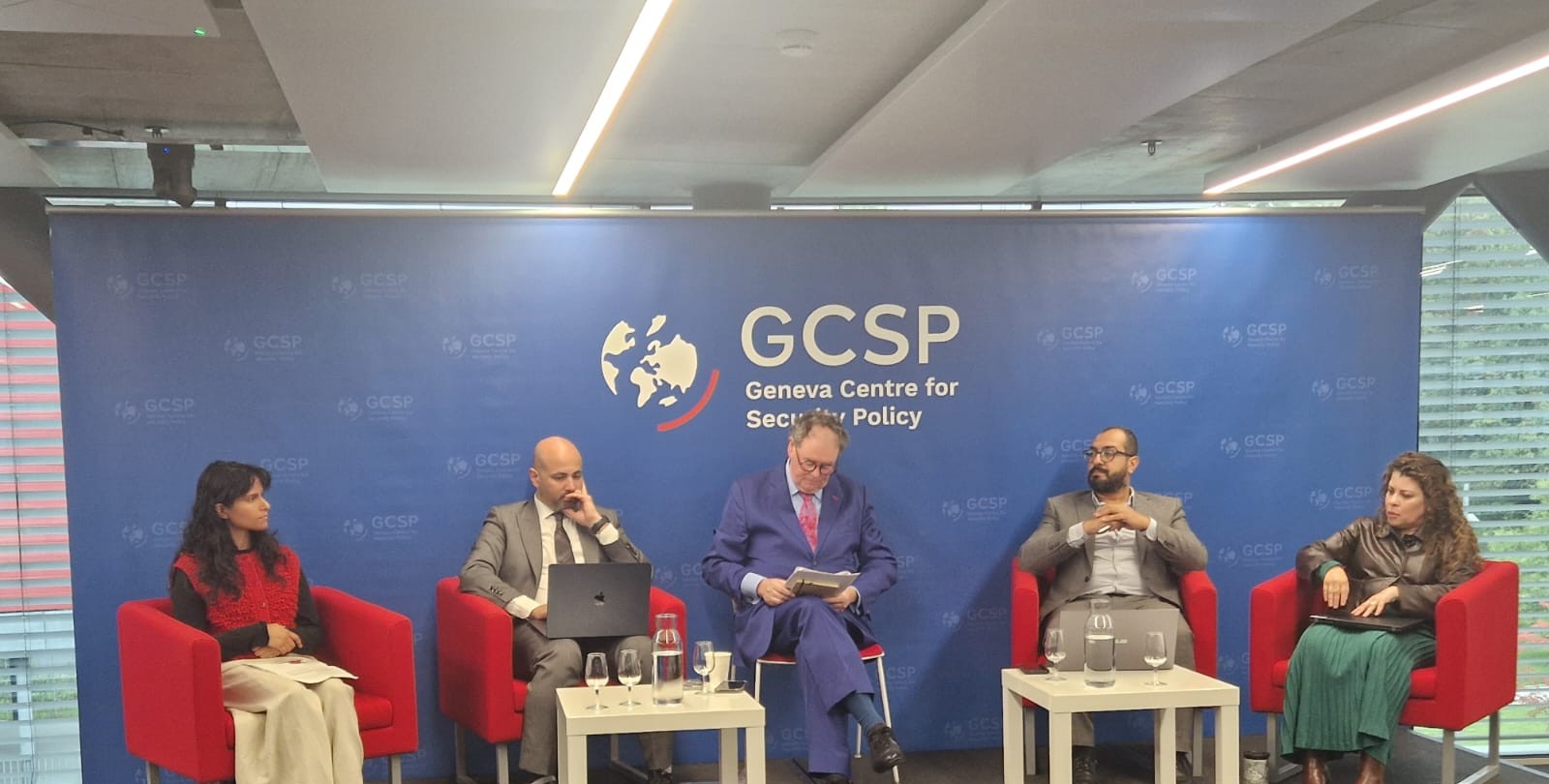
The Syrian Legal Development Programme (SLDP)، the International Bar Association’s Human Rights Institute (IBAHRI), and The Day After (TDA), co-organised a panel during Geneva Peace Week on the judiciary as a cornerstone of justice reform after decades of repression. We are at a crucial moment in Syria’s transition, the panel — “Prioritising Peace and Justice: Advancing and Harmonising Legal Accountability Frameworks in Syria” — examined how the judiciary can evolve from an instrument of state power to a guarantor of rights and accountability. Yousef Razouk, PhD , Syrian Lawyer and Legal Officer at SLDP, reflected on: How the judiciary functioned under the Assad regime as a tool of state control and the lasting legacies needing urgent attention and the Syrian judiciary potential roles under the current transitional period.
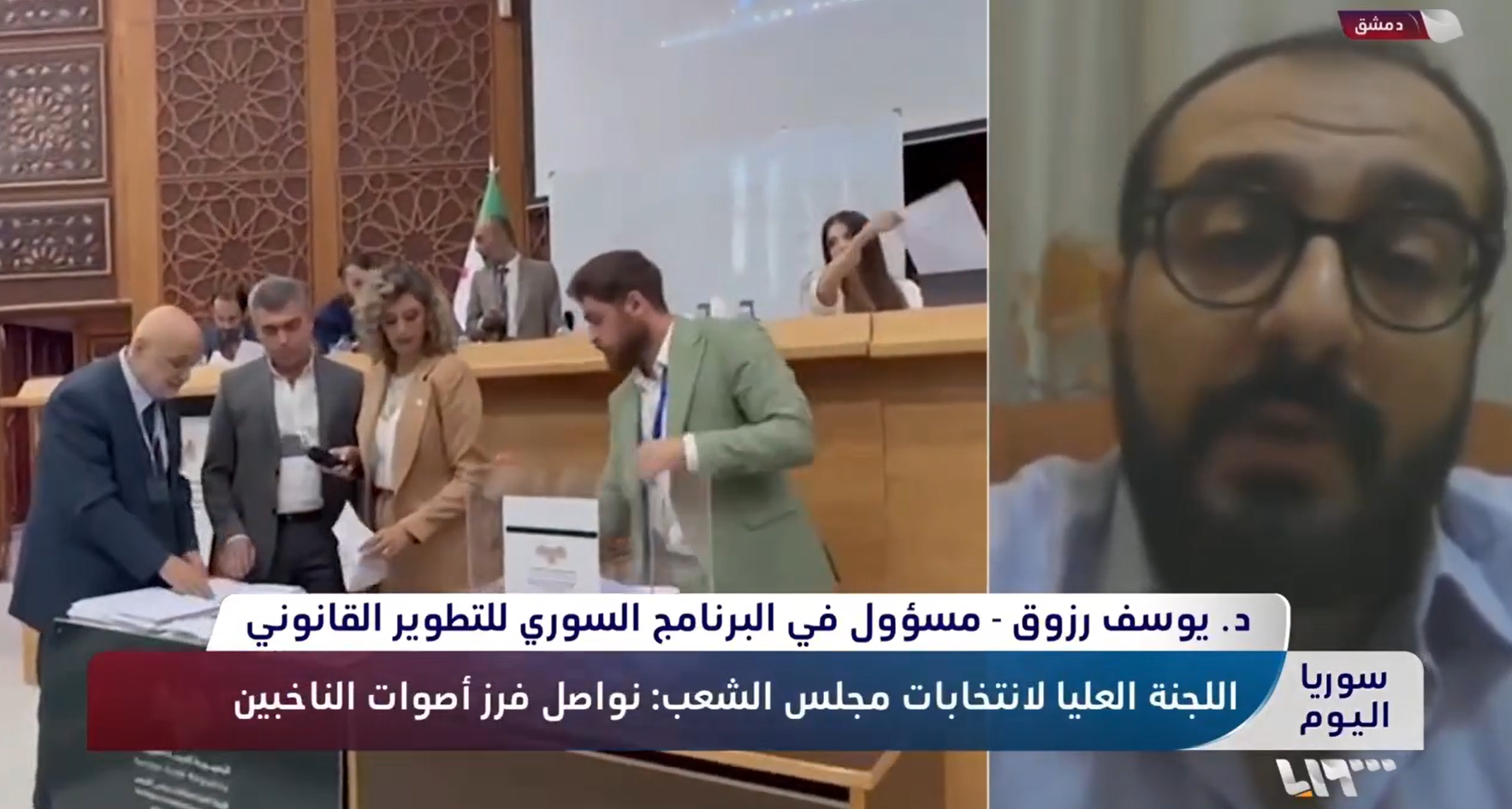
In a televised interview, Dr. Youssef Razzouk, Legal Officer in the International Law Support Unit at the Syrian Legal Development Programme, shared his views on the indirect election mechanism and the need for transparency to keep citizens informed at all stages of the process. Dr. Youssef sought to highlight the current gaps in the electoral process, particularly shortcomings related to the role of judicial appeals committees. For more information, you can read our new analysis on our website: “Political Participation and the Transitional Electoral System in Syria: International Law as a Normative Anchor.”
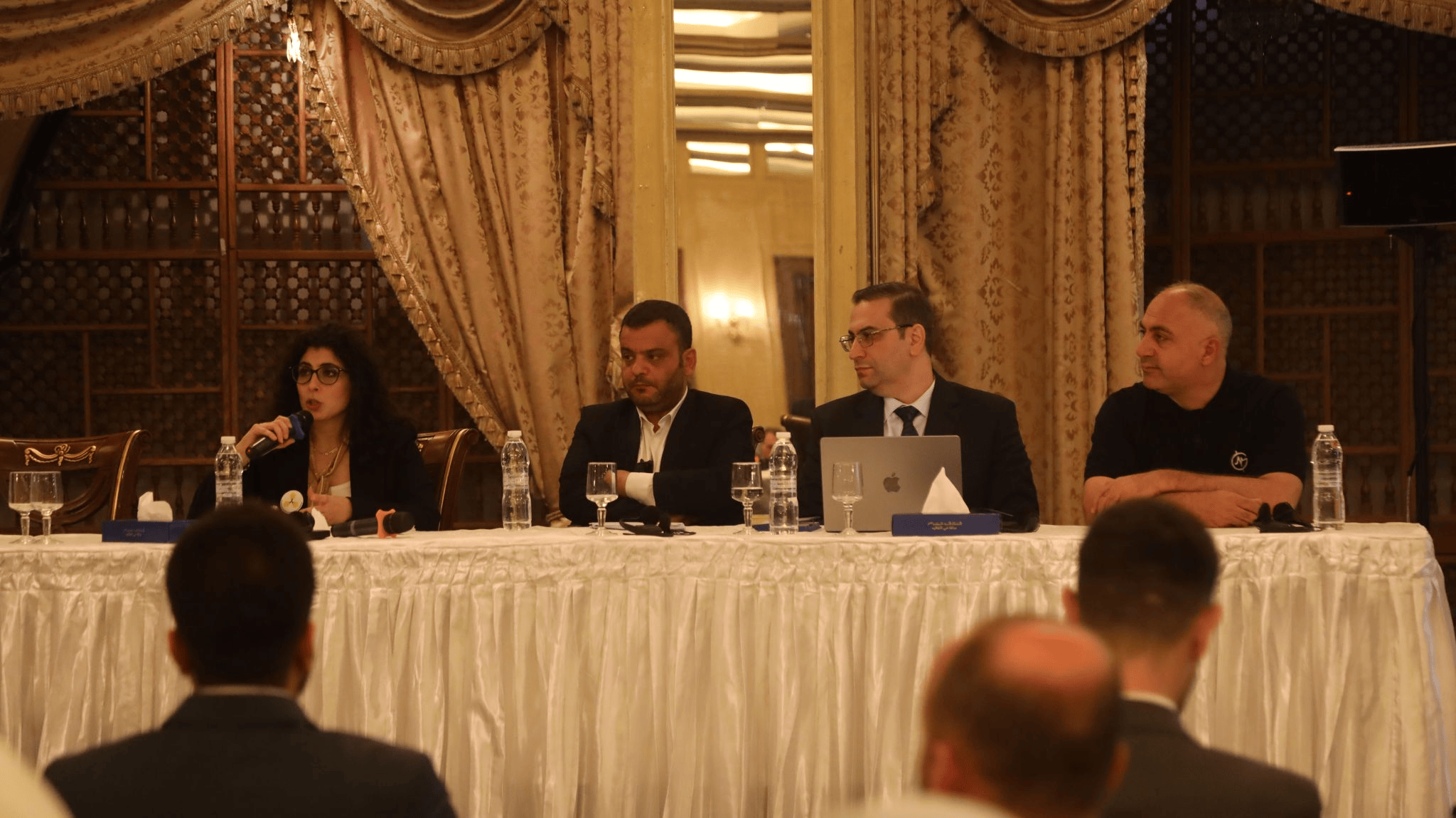
For the third consecutive year, and for the first time from Damascus, the Syrian Legal Development Programme participated in organizing the Third International Conference of Civil Society Organizations on the Use of Chemical Weapons in Syria, with notable and broad participation by survivors. SLDP’s Executive Director took part in a panel discussion during the conference on international accountability after the fall of Assad and Syria’s compliance with the Chemical Weapons Convention. The conference concluded with a set of recommendations developed by the organizing civil society organizations and addressed to the Syrian government, the Transitional Justice Commission, and the States Parties to the Organisation for the Prohibition of Chemical Weapons (OPCW).
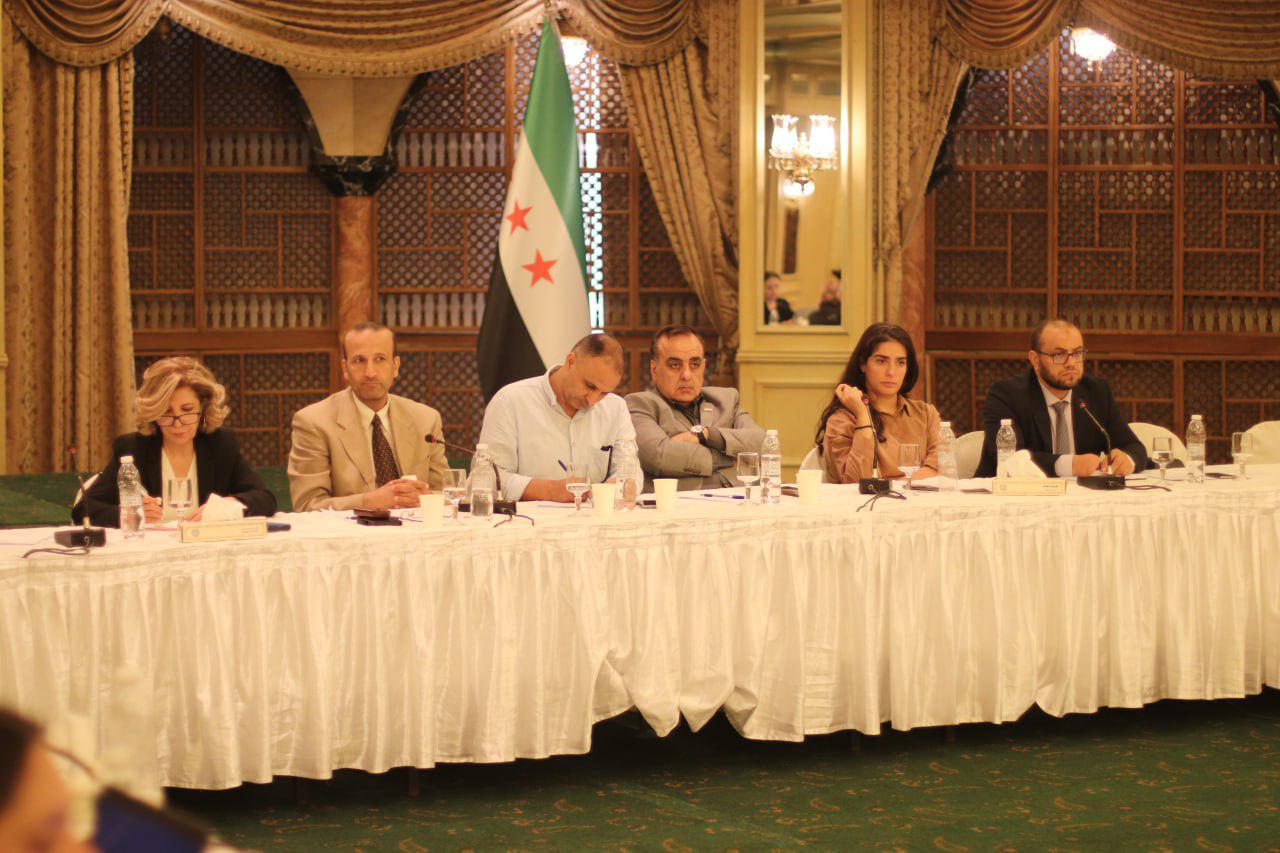
On 14–15 September, the Syrian Legal Development Programme, the Syrian Center for Media and Freedom of Expression, and the Dar team organized a two-day roundtable in Damascus on criminal accountability within the framework of transitional justice in Syria. This roundtable built on seven months of dialogue and included five online sessions with Syrian civil society organizations, victims’ groups, legal experts, and international partners. These discussions resulted in the drafting of the first version of a report documenting the key debates and recommendations. The roundtable in Damascus brought together Syrian civil society organizations alongside representatives of the National Transitional Justice Commission and the National Commission for the Missing, with the aim of deepening the discussion, presenting the preliminary report, and creating a space for direct engagement with members of both bodies. The workshop concluded with a collective brainstorming session on ways to enhance cooperation between Syrian civil society and the National Transitional Justice Authority. We look forward to further cooperation with these bodies regarding the report and the broader transitional justice process.
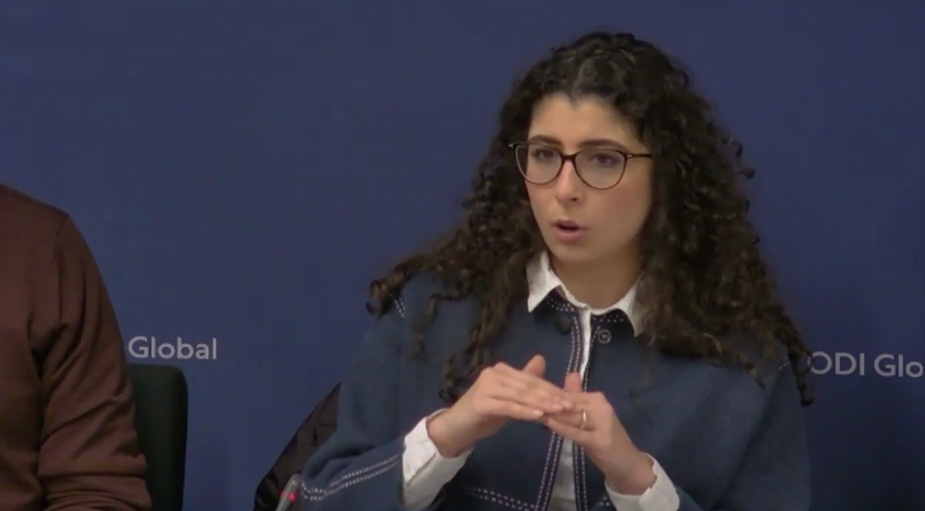
Years of resistance finally overthrew the brutal Assad regime in December 2024, bringing immense opportunities, alongside deep uncertainty. The launch of the people’s revolt in 2011 drew widespread acclaim, yet as the revolution struggled, the international community faltered at every red line. Rapprochement with Assad was gathering pace, yet now the landscape has dramatically shifted. Syria’s needs are immense. How should international aid actors respond?” Sana Kikhia, the executive director of the Syrian Legal Development Programme (SLDP) joins the discussion to shed light on the way forward.
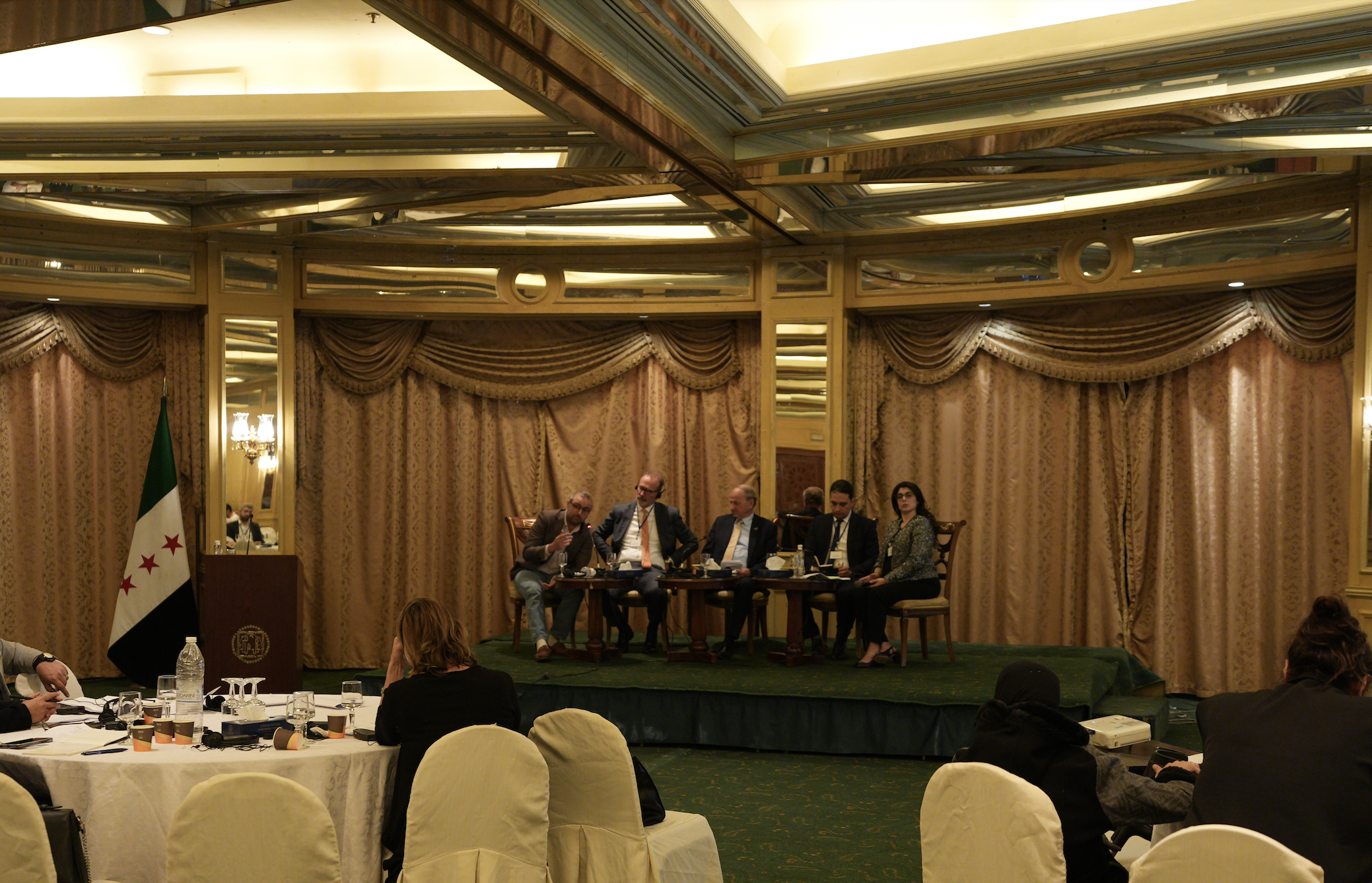
We were honored to host the First Syrian Conference on Business and Human Rights in partnership with the Syrian Global Business Association and The Syria Report, addressing how Syria’s reconstruction can be grounded in human dignity rather than the legacy of past violations. The video highlights the complicity of certain economic elites in previous abuses, the urgent need for fair housing, land, and property rights, and the importance of rigorous human rights due diligence by both local and international investors and business actors.
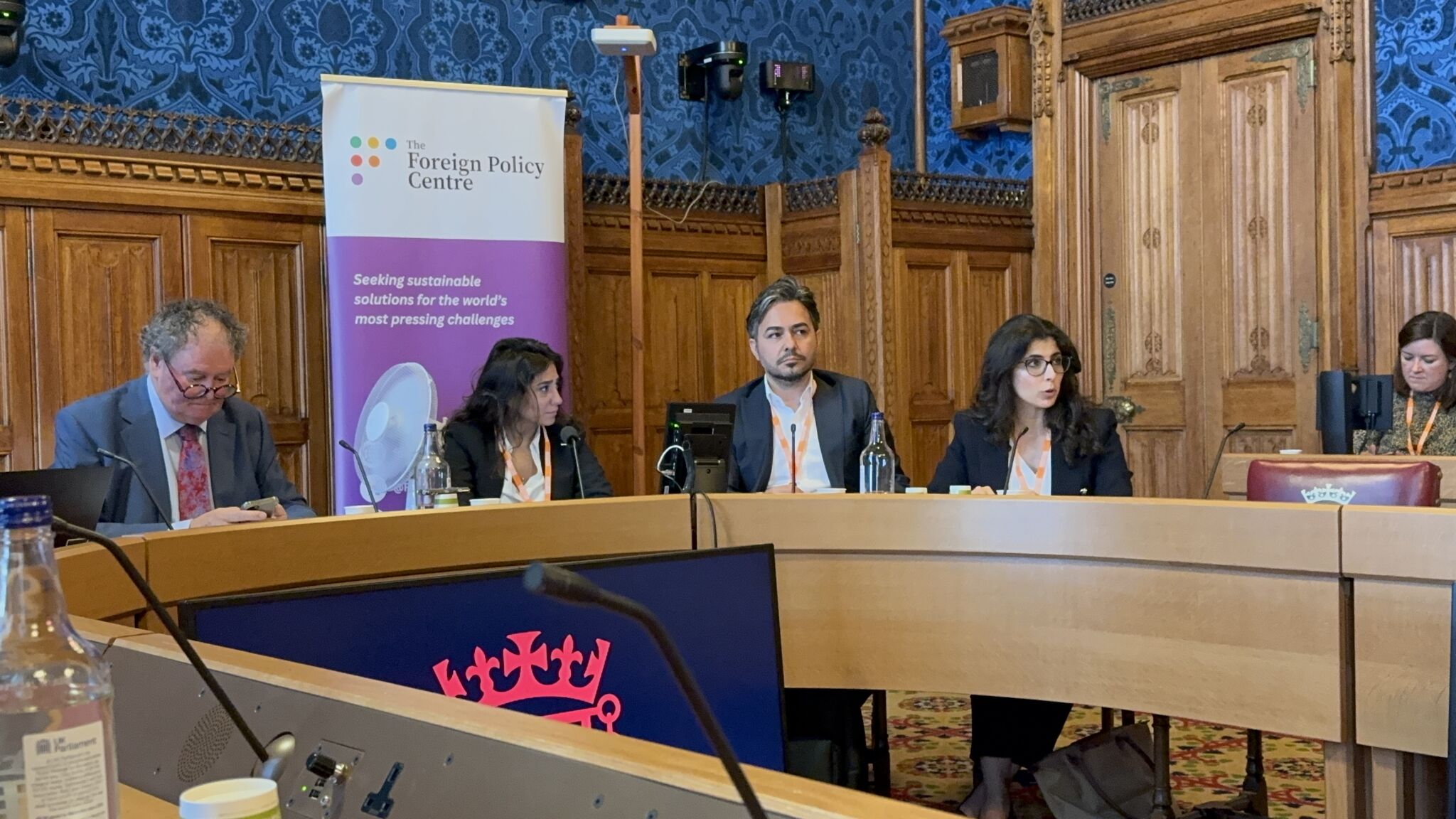
Syria’s Transition Nine Months On: Examining Frameworks for International Justice and Accountability
In September, at the House of Lords, SLDP Executive Director, Sana Kikhia, participated in the roundtable event “Syria’s Transition Nine Months On: Examining Frameworks for International Justice and Accountability”. During the discussion, she presented a briefing on our recent paper: Syria’s Constitutional Declaration and International Law. The paper examines the constitutional declaration in light of international legal standards and highlights challenges and opportunities it presents for Syria’s transitional phase.
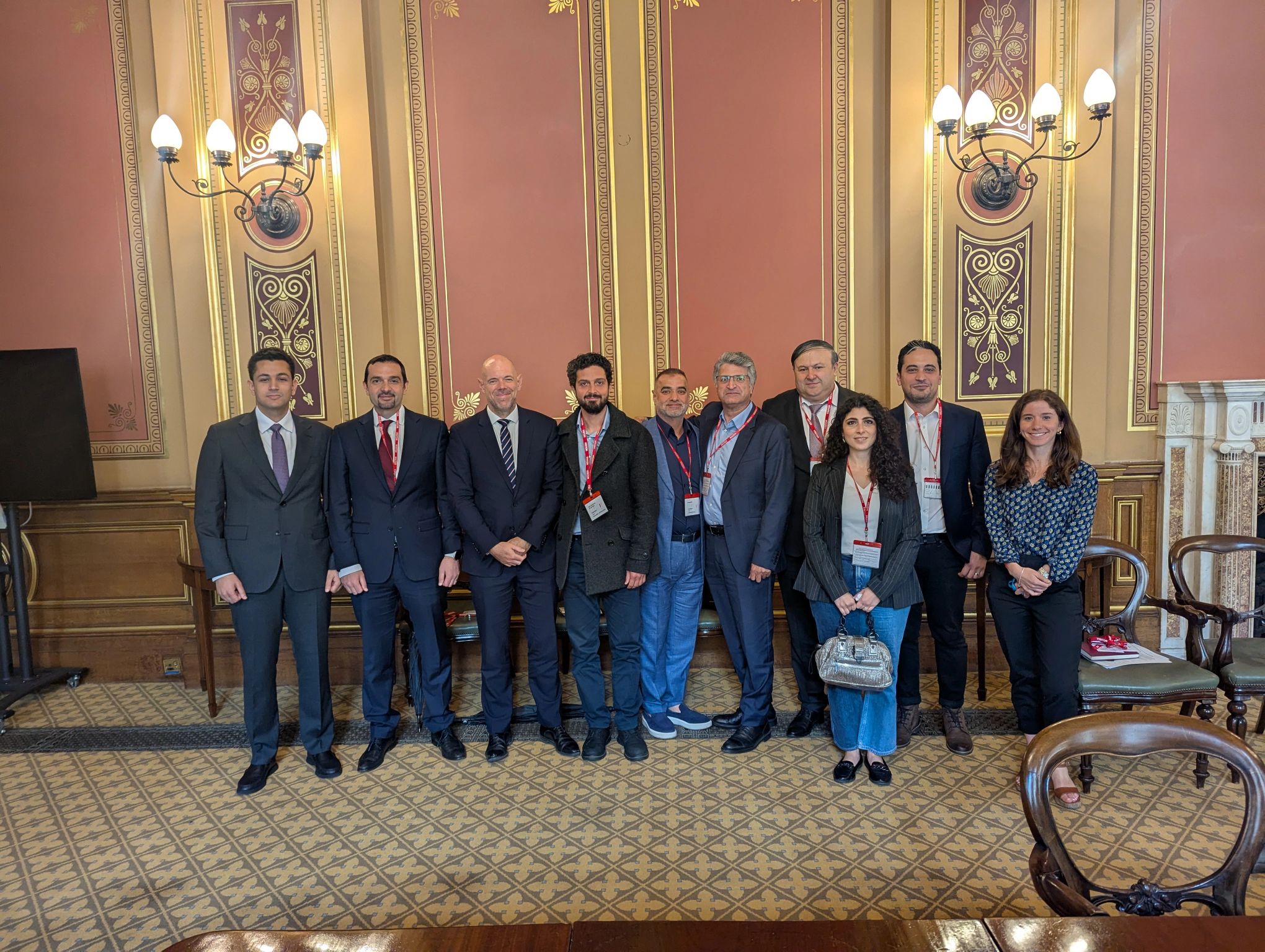
Meeting with the UK Foreign, Commonwealth and Development Office, Syria Department
In May 2025, SLDP and a group of Syrian Businesspeople and entrepreneurs had a constructive meeting with the UK Foreign, Commonwealth and Development Office , Syria Department, chaired by the Deputy Director Mr. Richard Oppenheim. The purpose of the meeting was to bring together Syrian business leaders to share their current challenges and perspectives on how the UK government can play a role in supporting Syrian investors interested in re-entering and contributing to Syria’s economic recovery. The discussion focused on the complex environment Syrian entrepreneurs are navigating, including sanctions and over compliance, and explored practical ways to facilitate responsible investment in the future. Syrian businesspeople highlighted the urgent need for reintegrating the Syrian banking system into the international one, support mechanisms, clear guidance, and avenues for sustainable economic engagement that align with international standards. During the meeting, SLDP highlighted the importance of embedding human rights due diligence and a rights-based approach to businesses activities in a fragile context like Syria.
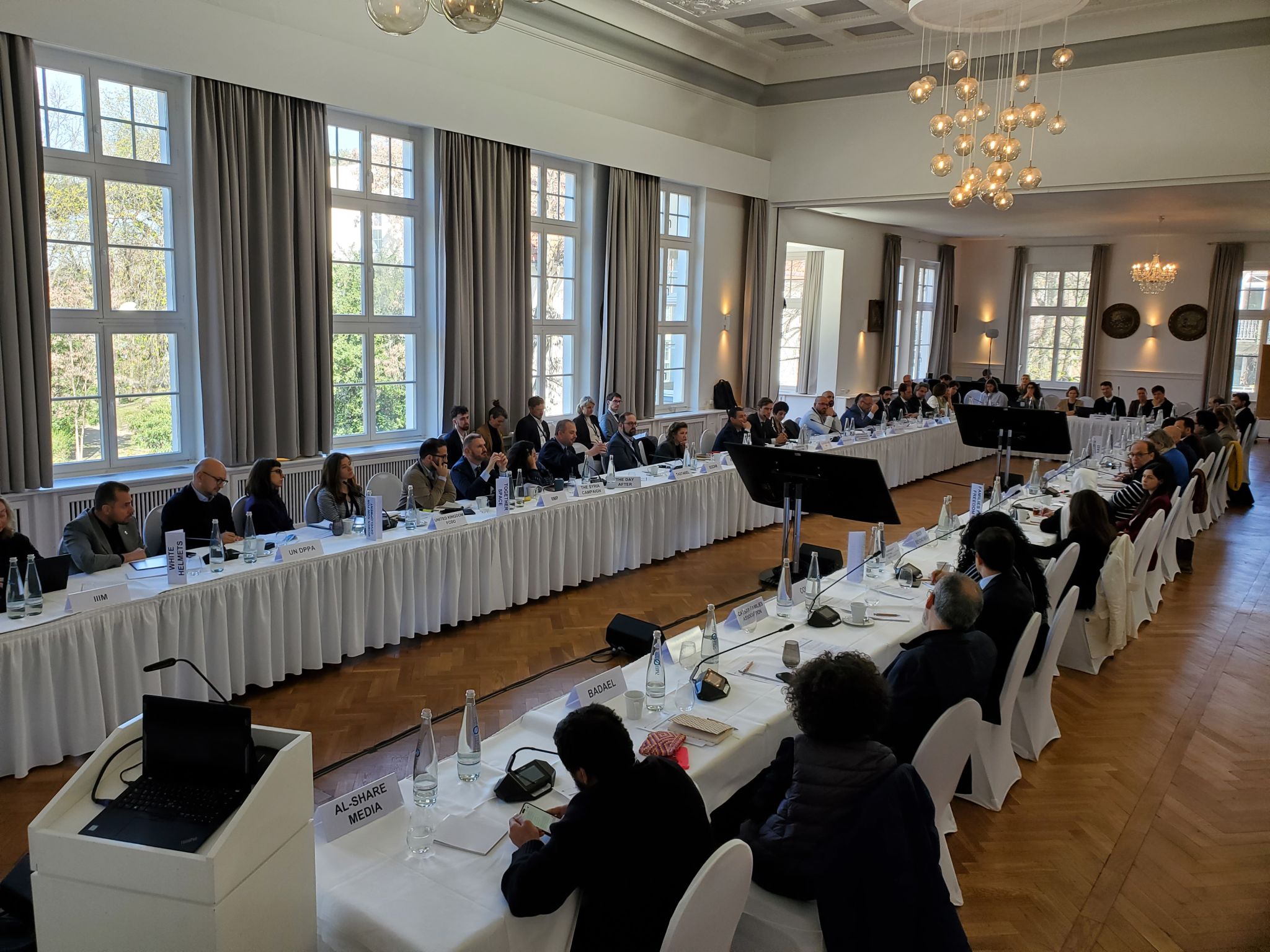
International Support to Transitional Justice in Syria: Lessons Learned and Moving Forward.
On April 7th, SLDP and the German Federation Foreign Office organized an important workshop on “International Support to Transitional Justice in Syria: Lessons Learned and Moving Forward.” The workshop was attended by 72 participants, including state representatives, the Syrian Foreign Ministry, civil society organizations, victims’ and survivors’ groups, international NGOs, UN mechanisms, and transitional justice experts.The event discussed the critical role of international support in enabling transitional justice for Syria, drawing on lessons learned from 13 years of Syrian justice efforts as well as other transitional justice processes. Participants assessed current dynamics, opportunities, and challenges, and explored ways to shape future support for Syria’s transitional justice efforts. The workshop focused on key questions, including: How can context-sensitive, coordinated, and adaptive support to transitional justice in Syria be shaped to respond to ongoing needs and fast-paced developments? How can transitional justice be effectively linked to peacebuilding, reconstruction, and development? How can multi-stakeholder engagement and inclusive, meaningful participation in political transition be effectively supported? By applying lessons learned from three decades of practice, the workshop aimed to lay the foundations for holistic, process-oriented engagement and support across multiple dimensions. Many thanks to the Berghof Foundation for their support during the workshop planning.
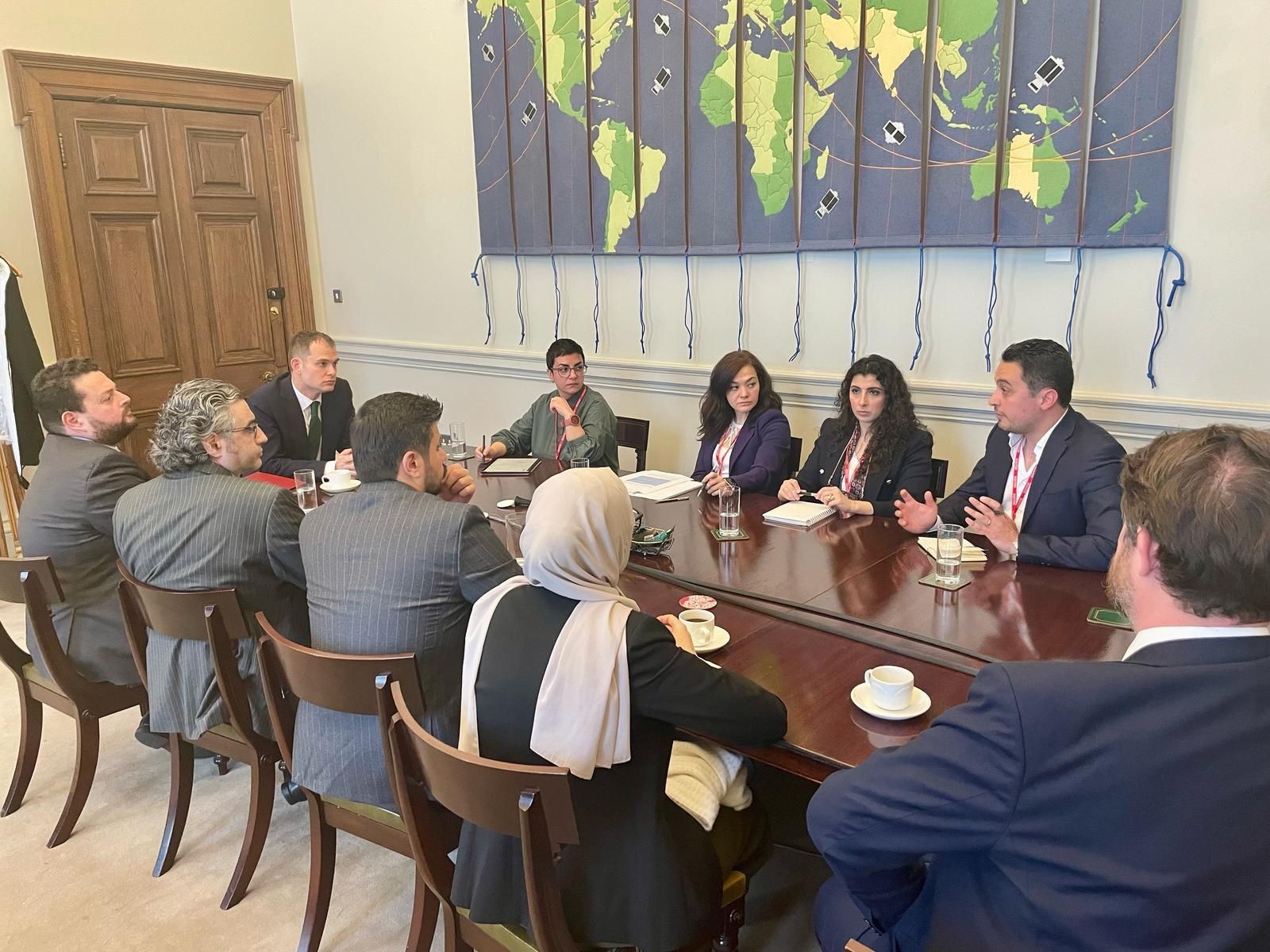
SLDP Executive Director, Sana Kikhia, and Senior Researcher, Eyad Hamid, joined representatives of Syrian civil society organisations based in the UK and the diaspora in a meeting with UK Minister for the Middle East ,Hamish Falconer , and MP David Taylor. SLDP highlighted the need to positively engage with the current transitional phase in Syria. Such support is essential to strengthen transitional justice process and the protection of the human rights of all citizens. SLDP argued for the need to lift sanctions as means to empowering Syrians to rebuild their country.
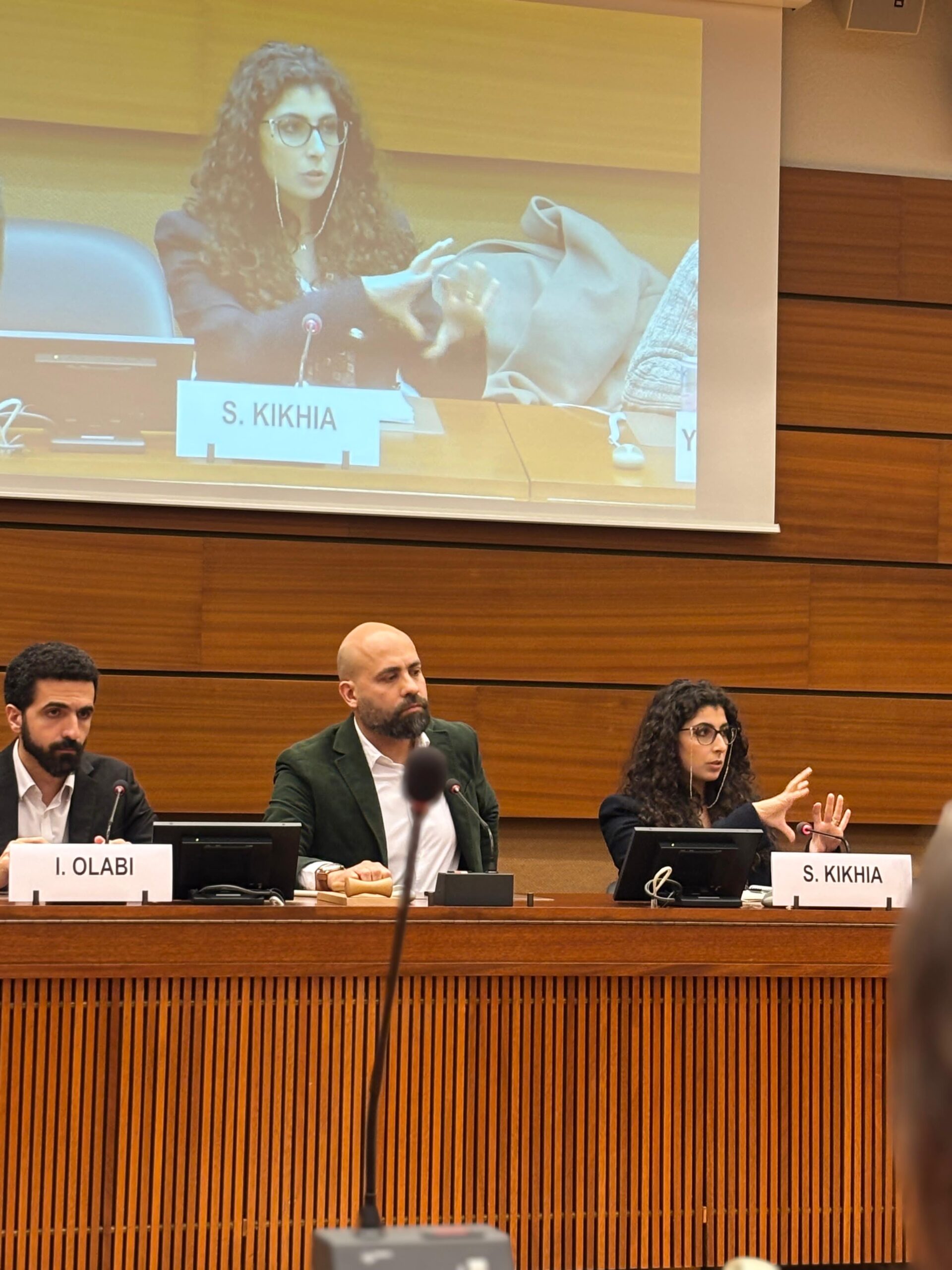
The Executive Director of the Syrian Legal Development Programme (SLDP), Sana Kikhia, participated in the first side event hosted by the Permanent Syrian Mission to the United Nations in Geneva on justice and accountability. During this important event, Sana Kikhia delivered remarks highlighting key issues related to the path of justice and accountability in Syria, focusing on the following points: (1) Bridging National and International Approaches: She emphasized that the discussion between national and international justice mechanisms should not be treated as a binary choice. Instead, priority should be given to creating complementarity between them, enabling the Syrian people to benefit as much as possible from the resources and expertise available in both fields; (2) The Role of Syrian Civil Society: She noted that Syrian civil society has been at the forefront of justice and accountability efforts over the past thirteen years, and stressed the need to continue involving civil society and recognizing its vital role in any national or international process; (3) A Syrian-Led and Syrian-Owned Approach: She affirmed that a justice process led and owned by Syrians is one that is envisioned, developed, and implemented by a broad range of Syrian stakeholders, noting that Syrians must be active participants in shaping justice in their country, not merely passive recipients; (4) Ownership and Inclusivity: She concluded by clarifying that the mere fact that an initiative is national does not necessarily mean it is owned by Syrians, emphasizing that ownership stems from inclusivity and meaningful participation. To achieve legitimate and sustainable justice, Syria must adopt an approach that prioritizes the design of the justice process and gives equal importance to how these mechanisms are conceived, constructed, and implemented. This event represents an important step toward strengthening both international and local dialogue on justice and accountability in Syria, and it highlights the significant role played in supporting this sensitive path. The event was organized by the Syrian Forum and Legal Action Worldwide (LAW).

2025 UNDP Annual Meeting on the Rule of Law and Human Rights
SLDP participated in the 2025 UNDP Annual Meeting on the Rule of Law and Human Rights in the plenary session: “D-Risk Investment: how human rights due diligence can help investors mitigate risks”. We emphasized that failing to proactively address human rights risks in conflict-affected settings and high risk areas risks perpetuating past injustices, deepening inequalities, and fueling social tensions—all of which may sustain or reignite conflict dynamics.
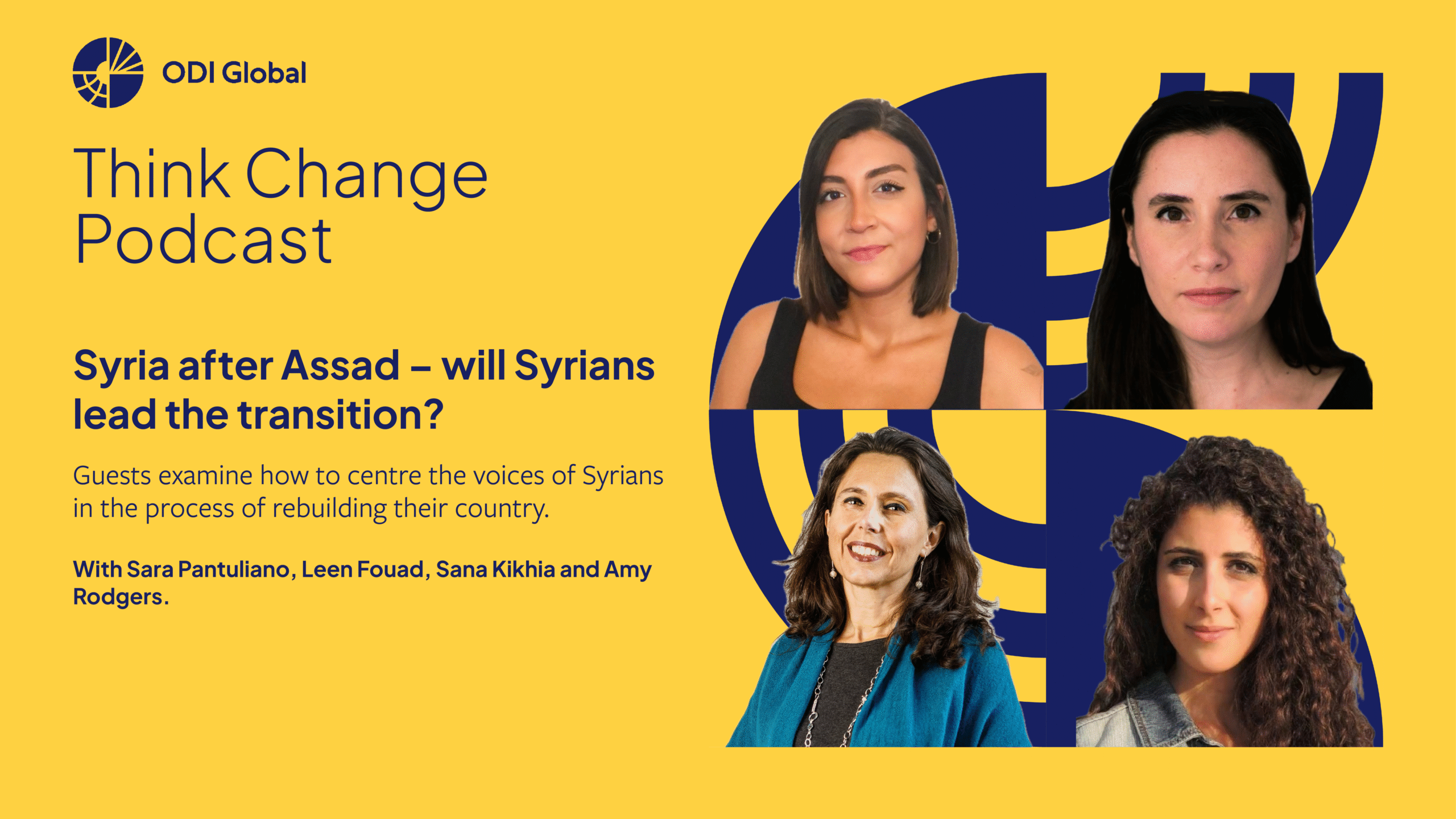
ODI Global’s Think Change podcast: Syria after Assad – will Syrians lead the transition?
Our Executive Director Sana Kikhia joins this episode of ODI Global’s Think Change podcast to unpack what’s next after Assad’s fall, exploring how Syrians can lead the transition. The episode also explores how international partners can support recovery without repeating the mistakes of the past, and how Syrian voices can be centred in the process of rebuilding their country.

Luxury, Secrecy, and Mountains of Cash: The Gilded Exile of Ousted Syrian Dictator Bashar al-Assad in Moscow, Six Months After the Regime’s Fall

Let Syria Recover: Lifting the Sanctions on Syria Is a Legal Imperative
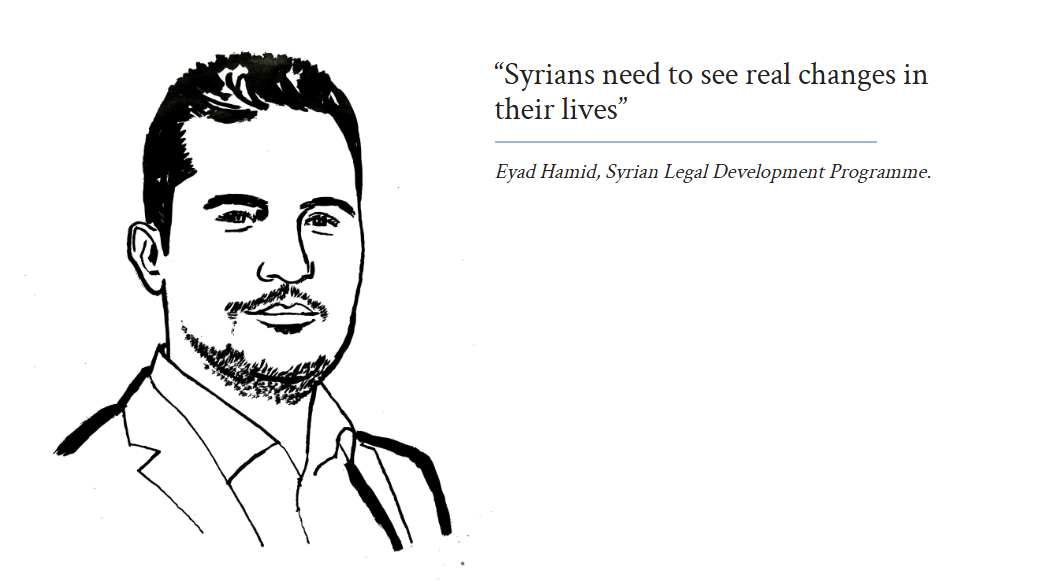
Interview with SLDP on lifting sanctions on Syria
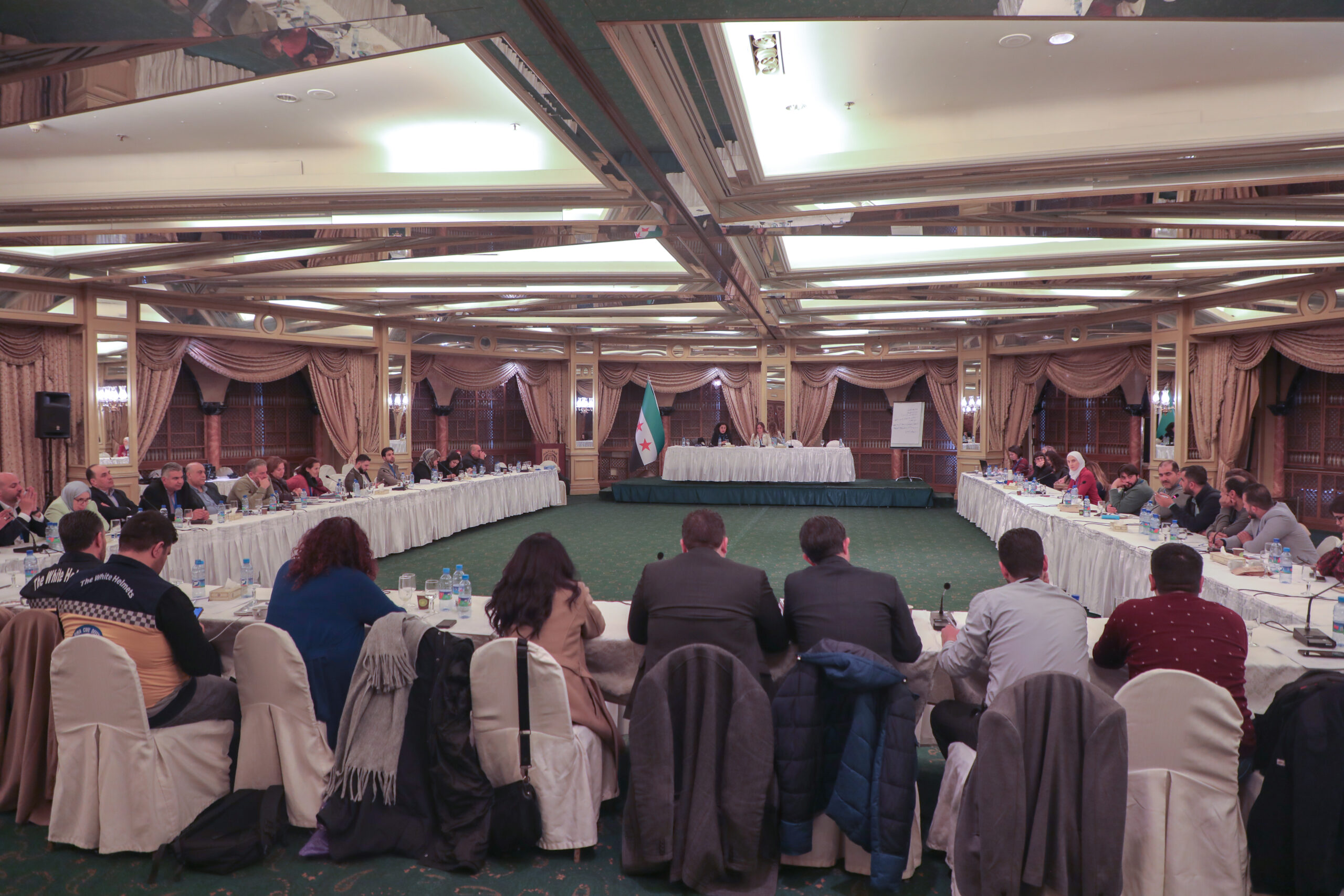
The first Transitional Justice Conference in Damascus, Syria
The first Transitional Justice Conference in Damascus, Syria concludes with the participation of 48 NGOs, survivors’ associations, families of the forcibly disappeared, and victims of various violations in Syria. The conference presented urgent and short term recommendations to the caretaker government and civil society, in additon to medium and long term recommendations.
Activities
2024
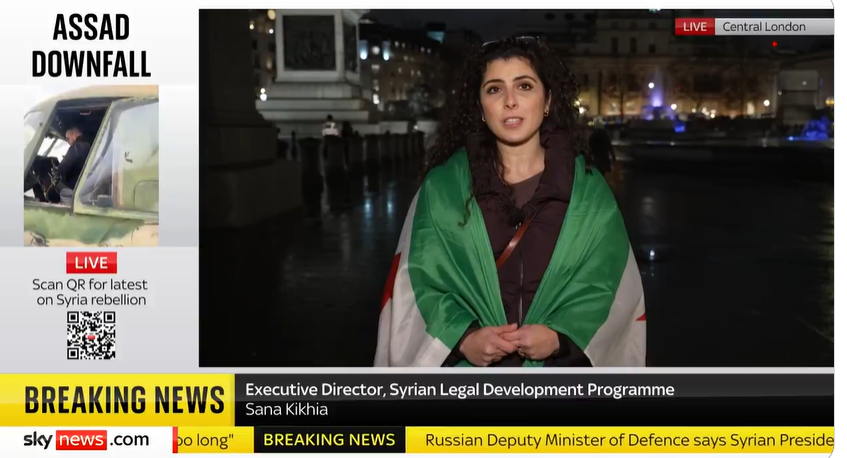
Sana Kikhia from the Syrian Legal Development Programme speaks to Sky’s Jonathan Samuels after the fall of Assad
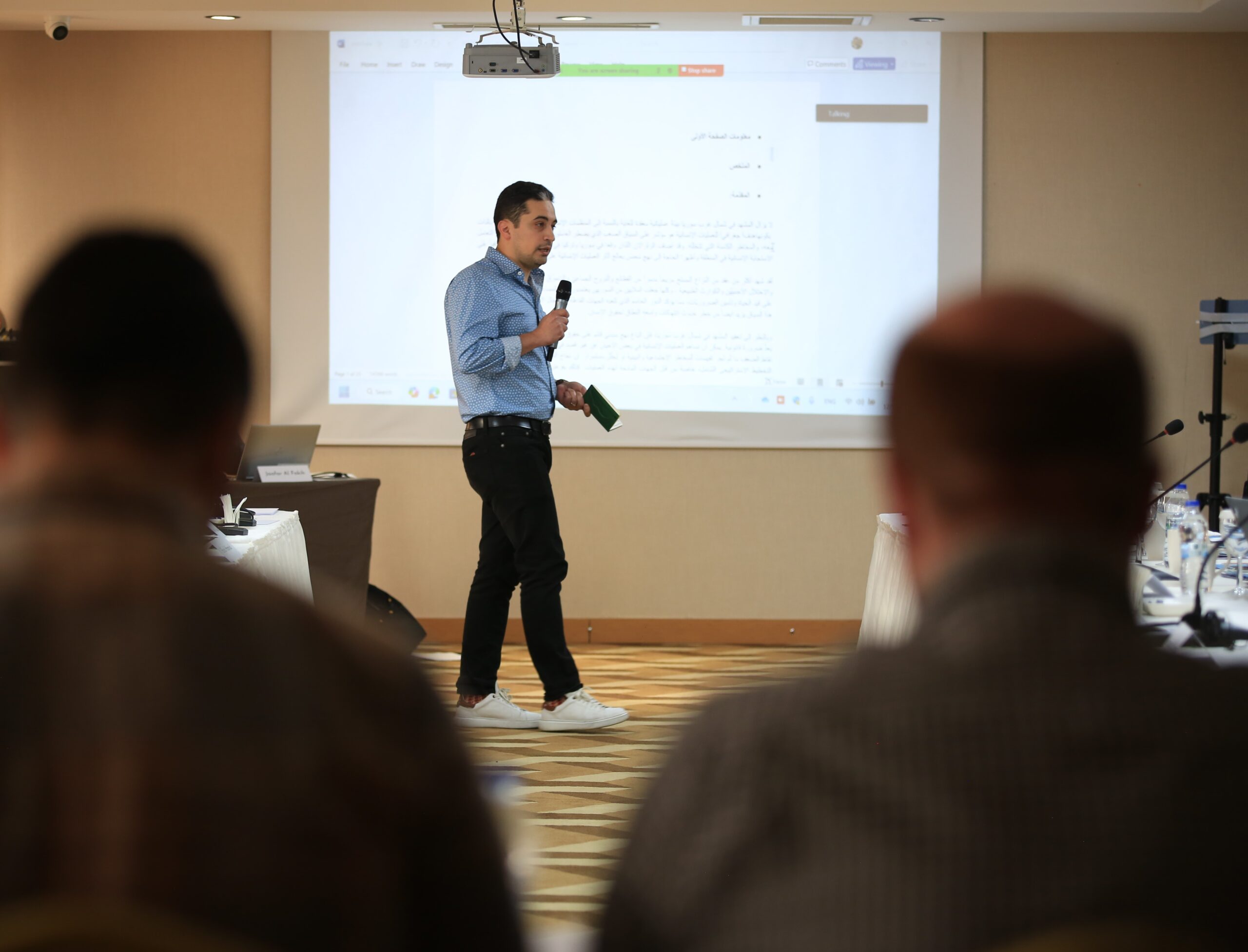
HRDD tool validation workshop in Gaziantep
In November 2024, SLDP particiapted in a workshop in Gaziantep, Türkiye, hosted by the Diakonia IHL Centre – Syria Regional Desk, introducing and validating the Human Rights Due Diligence (HRDD) Tool. The workshop brought together 21 representatives from 15 NGOs working across vital sectors in northwest Syria. Developed by SLDP in collaboration with the Diakonia IHL Centre and the Syrian Civil Society Networks Platform, this innovative tool integrates human rights considerations into humanitarian project planning and implementation in conflict zones. The IHL Centre is part of the Blue Sky Collective Initiative, funded by the Disasters Emergency Committee and led by Christian Aid.

The Syrian regime is turning the Lebanese displacement crisis into an economic and political gain.

SLDP cited in this article on Early Recovery in Syria, EU and refugees return

“Eye on the Palace”.. Asma al-Assad and Her “Secret Office” Under the Sword of Sanctions
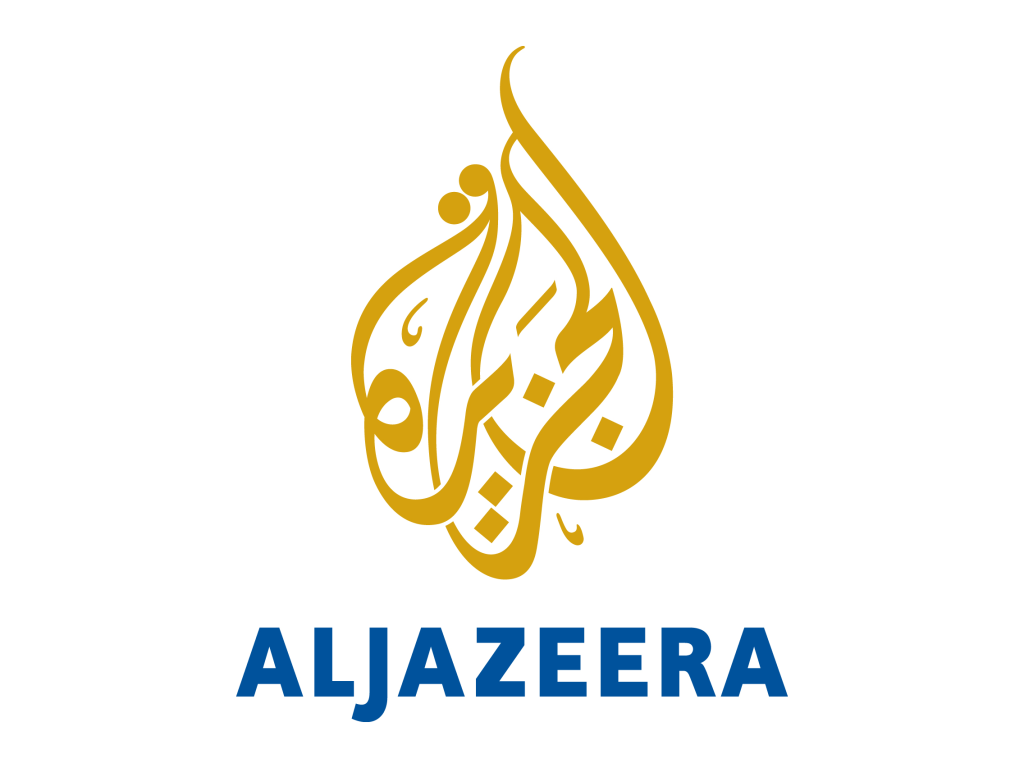
‘They’re gone’: Victims’ families in Syria demand truth, justice, closure
In an Al Jazeera article discussing the preservation of evidence in Syria, Veronica Bellintani, head of the International Law Support Unit at the Syrian Legal Development Programme, emphasized the critical importance of protecting documents and securing mass graves to build cases against perpetrators. She highlighted concerns about document admissibility in court and stressed the need for proper chain of custody. Acknowledging the immense pain families have endured and their desire to show the world the horror of the Syrian regime, Bellintani also warned about the casual handling of sensitive documents by foreign media, noting that protecting these documents must remain a priority.

Economic Reform in Syria: As Important and Complicated as Political Reform
On December 8, 2024, Syria potentially faces a new economic era following the end of the Assad regime. The Syrian Legal Development Programme highlights critical challenges for businesses: navigating complex property rights, overcoming decades of economic corruption, addressing international sanctions, and implementing robust human rights due diligence. While substantial investment opportunities exist, businesses must carefully assess risks and prioritise ethical reconstruction.

Syria’s Paper Trail of Atrocity Must Be Preserved
In an article published by Foreign Policy, Veronica Bellintani, head of the International Law Support Unit at the Syrian Legal Development Program, emphasized the importance of directing sustainable and long-term funding to Syrian NGOs directly. She stressed that this funding should be flexible and enable Syrians to develop Syrian-led responses, rather than imposing pre-established models of what justice and Syria’s future should look like.

Assad dispatched $250mn of Syria’s cash to Moscow
In a Financial Times report, Eyad Hamid from the Syrian Legal Development Programme addressed Russia’s role as a financial sanctuary for the Assad regime. Hamid talked about how corruption under Assad was not a peripheral issue but a fundamental governance strategy, with Moscow serving as a key hub for evading Western sanctions imposed since 2011.
Syria Insight: EU weighs human rights with repatriation in normalising Assad
In an interview with The New Arab, Veronica Bellintani from the Syrian Legal Development Programme critiqued European diplomatic approaches toward Syria, arguing that agreements with dictatorships cannot resolve migration issues. She emphasized that collaborating with the Assad regime will not stop Syrians from leaving, as the regime itself remains the root cause of displacement. Bellintani highlighted how prioritizing security and economic interests over human rights is fundamentally misguided and unsustainable.
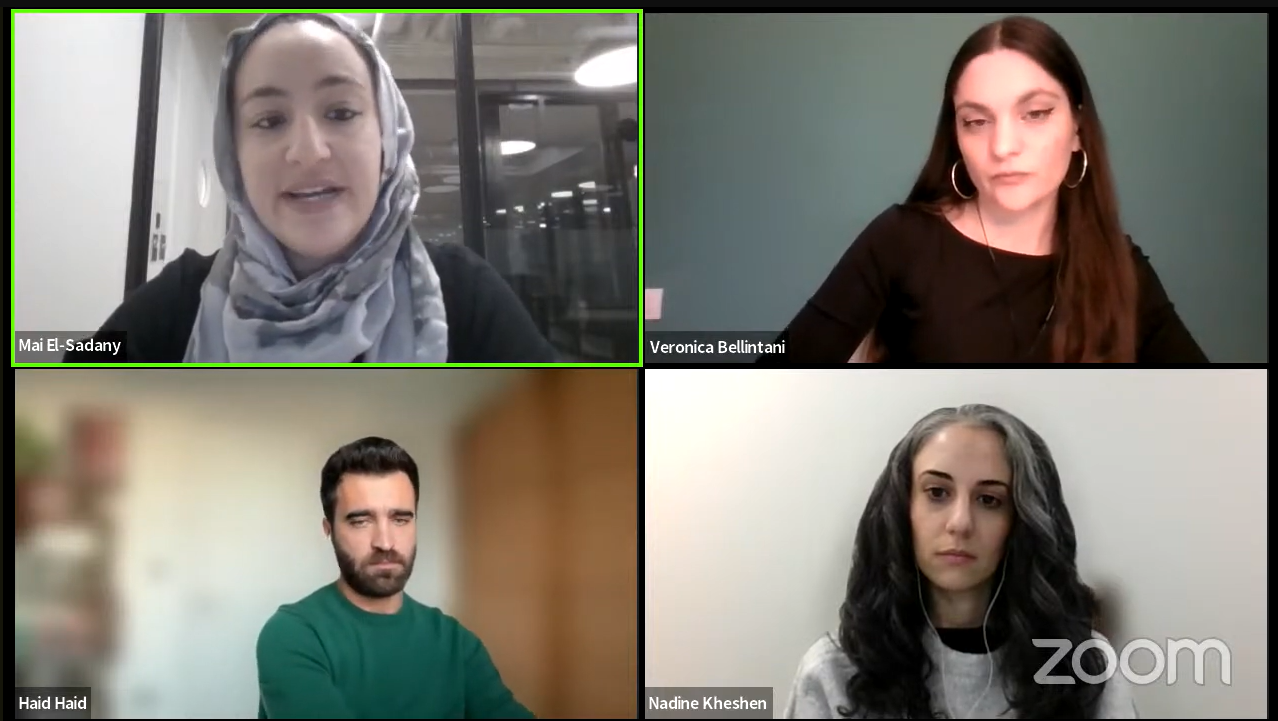
Syria and Syrian Refugees: From EU Migration Policies to Israel’s War on Lebanon.
The Tahrir Institute for Middle East Policy (TIMEP) virtual event titled: “Syria and Syrian Refugees: From EU Migration Policies to Israel’s War on Lebanon,” featuring Veronica Bellintani (Syrian Legal Development Program), Haid Haid (Chatham House MENA Program), Nadine Kheshen (TIMEP), and moderated by TIMEP Executive Director Mai El-Sadany. In a dynamic discussion, panelists unpacked key questions: What is the situation in Syria today, and is Syria truly “safe” for returnees? How has the Assad regime positioned itself amid Israel’s wars on Gaza and Lebanon? How are EU countries responding to this moment, particularly as it pertains to refugees and migrants? And what might this mean for the normalization of the Assad regime going forward?

One Year since the ICJ’s Provisional Measures.
On November 16 2023, the International Court of Justice issued an order imposing provisional measures on the Syrian state. Based on a joint complaint by Canada and the Netherlands, the provisional measures included an order to prevent acts of torture and prevent the destruction of evidence related to torture. Although these measures are binding, the court is unable to enforce compliance, and the Syrian regime has refused to implement it. One year later, we can assess the impact and challenges of this ruling. What are the next steps? According to Mouhanad Sharabati, Senior Legal Officer at the Syrian Legal Development Programme (SLDP): “A ruling that establishes the responsibility of the Syrian state – regardless of its compliance – would set a legal precedent reflecting international recognition of the suffering of victims and survivors of torture, and would underscore the systematic nature of the Syrian regime’s policy of torture.”

SLDP participates in the Inaugural Dialogue on Business & Human Rights in the Arab Region in Doha.
The Human Rights and Business Unit of SLDP was proud to participate in the Inaugural Dialogue on Business & Human Rights in the Arab Region in Doha from October 28-29. HRBU members participated in group work sessions on the important roles that civil society organizations, national human rights institutions, and businesses can play to foster and ensure respect for human rights among business actors.
We are keen on building on the many important conversations the Dialogue prompted. We plan on seizing this notable occasion to continue to advocate for greater respect for human rights among business actors in Syria and increased awareness of human rights responsibilities of businesses by rights holders. We also plan on engaging with international actors such as UN bodies to increase their understanding of the dynamics in Syria in this respect, namely the links between the state, de facto authorities, and businesses, and to ensure that adequate recommendations to stakeholders are reflected in reports by international and regional actors.

Launching a New Report: Chemical Weapons in Syria Business Responsibility
The Human Rights & Business Unit of SLDP launched a brief titled “Chemical Weapons in Syria: Business Responsibility”. The brief examines the critical role businesses have played in supporting the development of the Syrian regime’s chemical weapons arsenal, specifically through the trade of chemical precursors. It emphasizes that corporate actors, often overlooked in discussions of accountability, must be held responsible for their complicity in chemical weapons attacks. The report provides examples of corporate involvement in international crimes, outlines the relevant international legal frameworks, and highlights the companies implicated in supplying chemical materials to Syria. The report concludes with recommendations to states, businesses, and civil society.
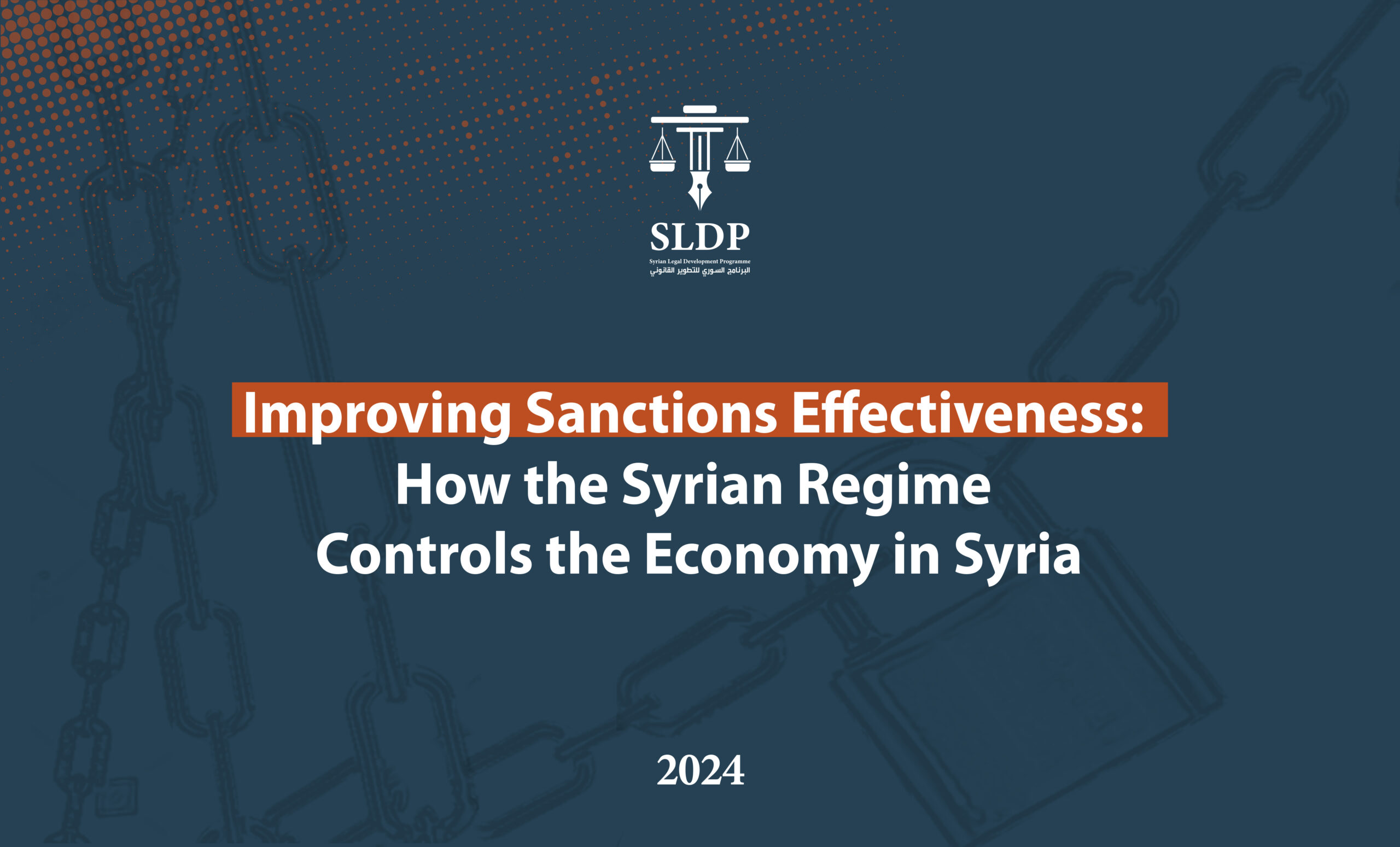
Launching a New Report: Improving Sanctions Effectiveness: How the Syrian Regime Controls the Economy in Syria
The Business and Human Rights Unit is launching a new report focusing on the Syrian regime’s tight control over the economy, despite extensive international sanctions. The report reveals how regime-affiliated cronies continue to dominate crucial sectors such as oil, telecommunications, and real estate, benefiting from legal loopholes and public-private partnerships.
The report sheds light on how crony capitalists exploit essential industries like oil and wheat, maintaining monopolies that drive up costs and restrict supply to ordinary Syrians. It also highlights how current sanctions have unintentionally harmed civilians more than regime elites, emphasizing the need for smarter, targeted sanctions that isolate regime insiders without further affecting the general population. Additionally, the report examines Syria’s pharmaceutical industry, which has been severely impacted by the economic collapse, leading to a shortage of life-saving medicine. The 2021 Investment Law is another focus, showing how it has strengthened the regime’s economic grip, allowing loyalists to consolidate control over strategic assets through public-private partnerships.
This report underscores the urgent need for sanctions reform to disrupt the regime’s economic stranglehold and promote sustainable recovery for Syrian civilians.

Launching a new report: Business Responsibility Towards the Environment and Human Rights in Syria
The Human Rights and Business Unit launched a new report focusing on business responsibility towards the environment. Private business impact on the environment and related human rights in Syria could be observed in three main areas: the impact of the oil industry, deforestation, and urban expansion. These areas of impact are not restricted by the internal boundaries that delineate the different areas of control within the country.
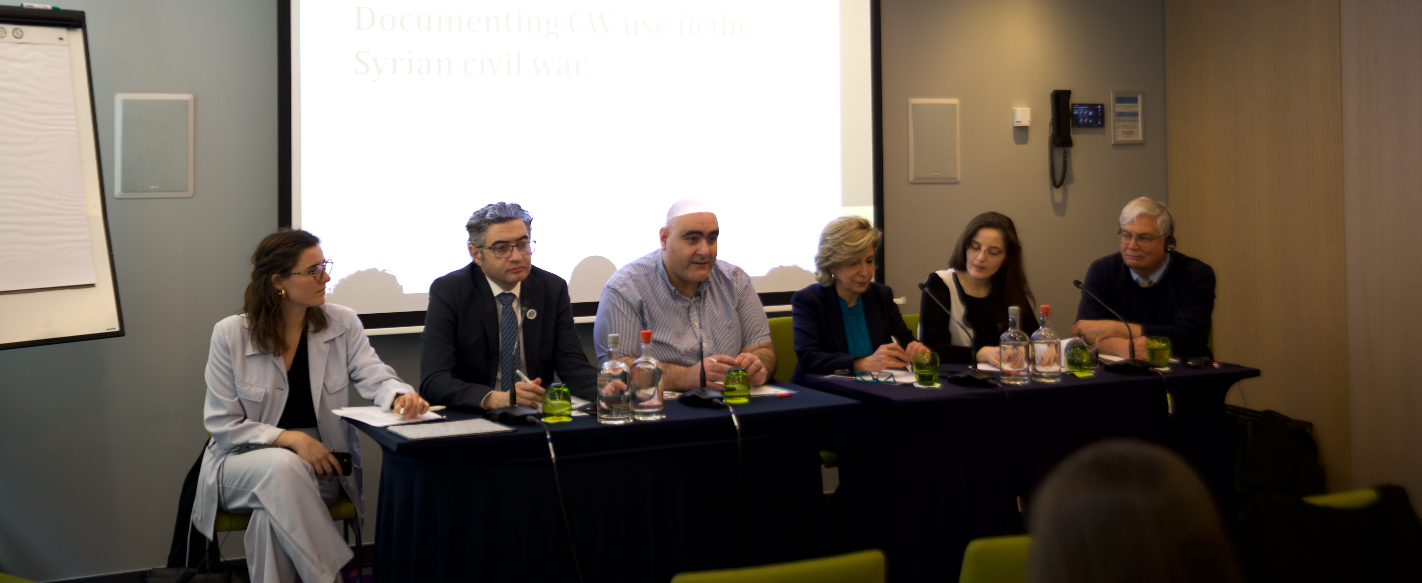
Charting the Path to Justice: Syrian Civil Society and Accountability for Chemical Weapons Use – Side event on the margins of Brussels 8th Conference on the Future of Syria
SLDP, in partnership with SNGOs, organised a side event titled Charting the Path to Justice: Syrian Civil Society and Accountability for Chemical Weapons Use.’’ on the margins of Brussels 8th Conference on the Future of Syria.
Speakers:
Ameenah Sawwan, campaigner and former volunteer in field hospitals in Muadamiyat al-Sham
Farouq Alhabib, Deputy Head, the White Helmets
Dr. Jean Pascal Zanders, The Trench
Jumana Seif, ECCHR
Alice Autin, HRW
Moderator:
Assaad Al Achi – Executive Director, Baytna
You can access the recording of the event here:
Charting a Path to Justice: Syrian Civil Society and Accountability for Chemical Weapons Use – YouTube
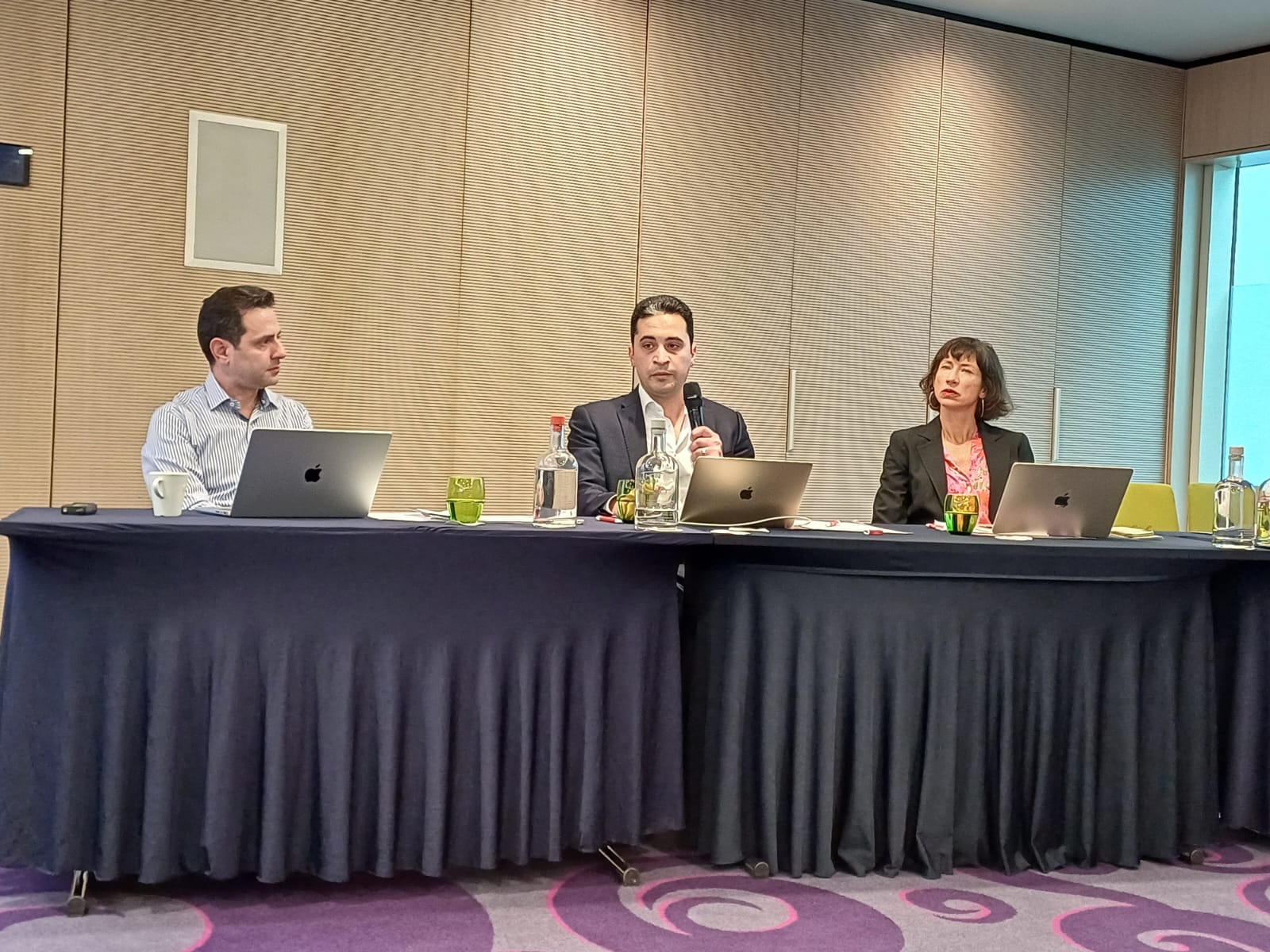
Early Recovery in Syria: Risks and Opportunities in Housing, Land, and Property Rights – Side event on the margins of Brussels 8th Conference on the Future of Syria
SLDP and its partners hosted a side event during the 8th Brussels Conference on the Future of Syria. At this event, our Senior Researcher, Eyad Hamid, conveyed our insights concerning the prevalent human rights abuses related to Housing, Land, and Property (HLP) in Syria, along with outlining the obligations of both businesses and NGOs towards HLP rights.
Activities
2023

A Workshop and Roundtable Titled: Using the International Court of Justice’s Advisory Opinion Procedure as an Accountability Tool in Syria
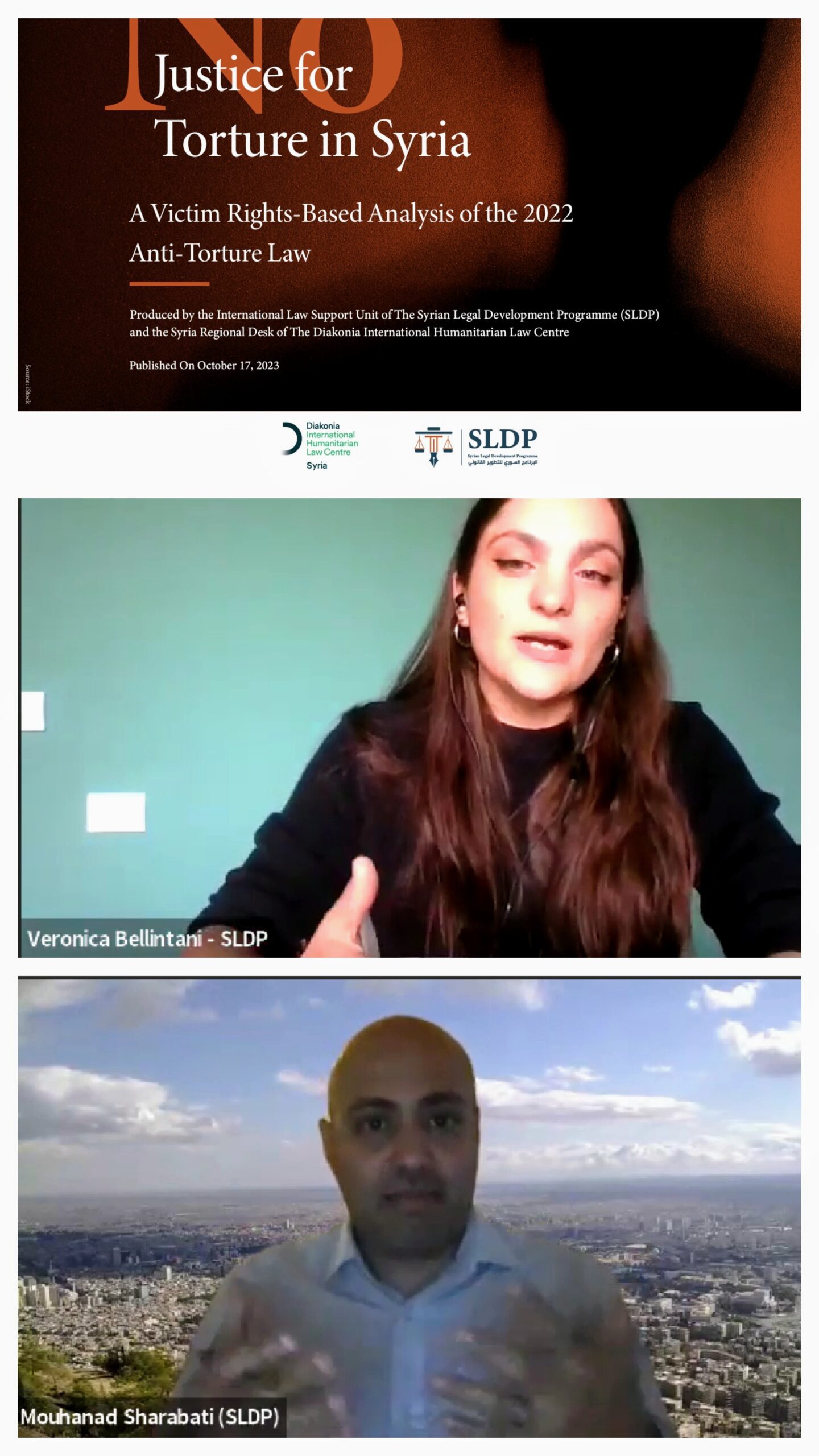
Launch Event of SLDP and Diakonia New Report: No Justice for Torture in Syria – A Victim Rights-Based Analysis of the 2022 Anti-Torture Law
In partnership with The Diakonia International Humanitarian Law Centre , The International Law Support Unit of SLDP launched its new report No Justice for Torture in Syria: A Victim Rights-Based Analysis of the 2022 Anti-Torture Law. This paper analyses the Syrian authorities’ failure to fulfil its obligations under international law despite the adoption of the new anti-torture law.
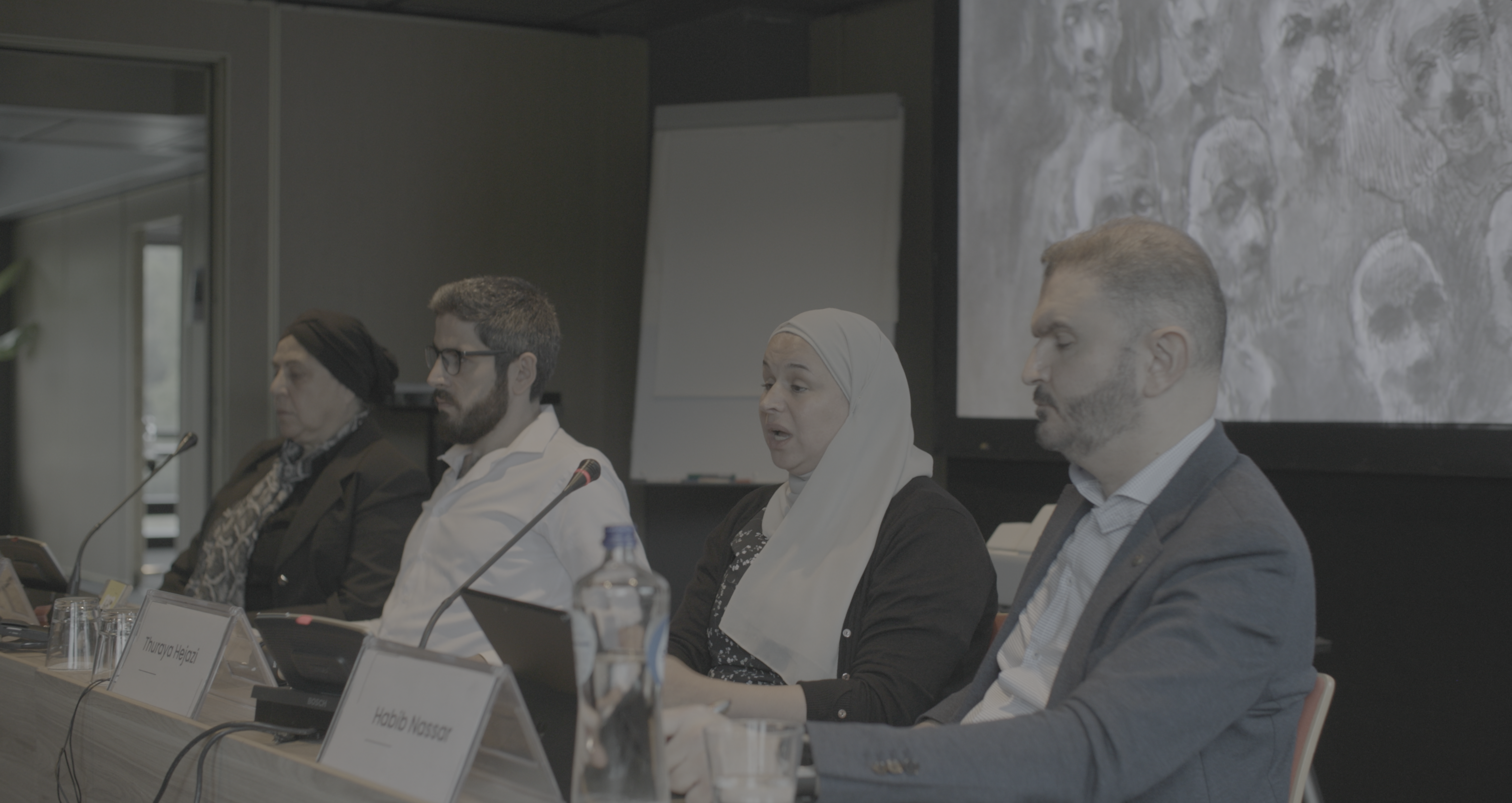
Survivors’ Right to Reply Side Event : Torture Case Against Syria
In partnership with victims/survivors and families of Disappeared groups in Syria, and on the margins of Canada and the Netherlands oral interventions on the case and the provisional measures before the International Court of Justice, SLDP convened a side-event as a “Right to Reply” to the oral interventions and what the ICJ case means to them.
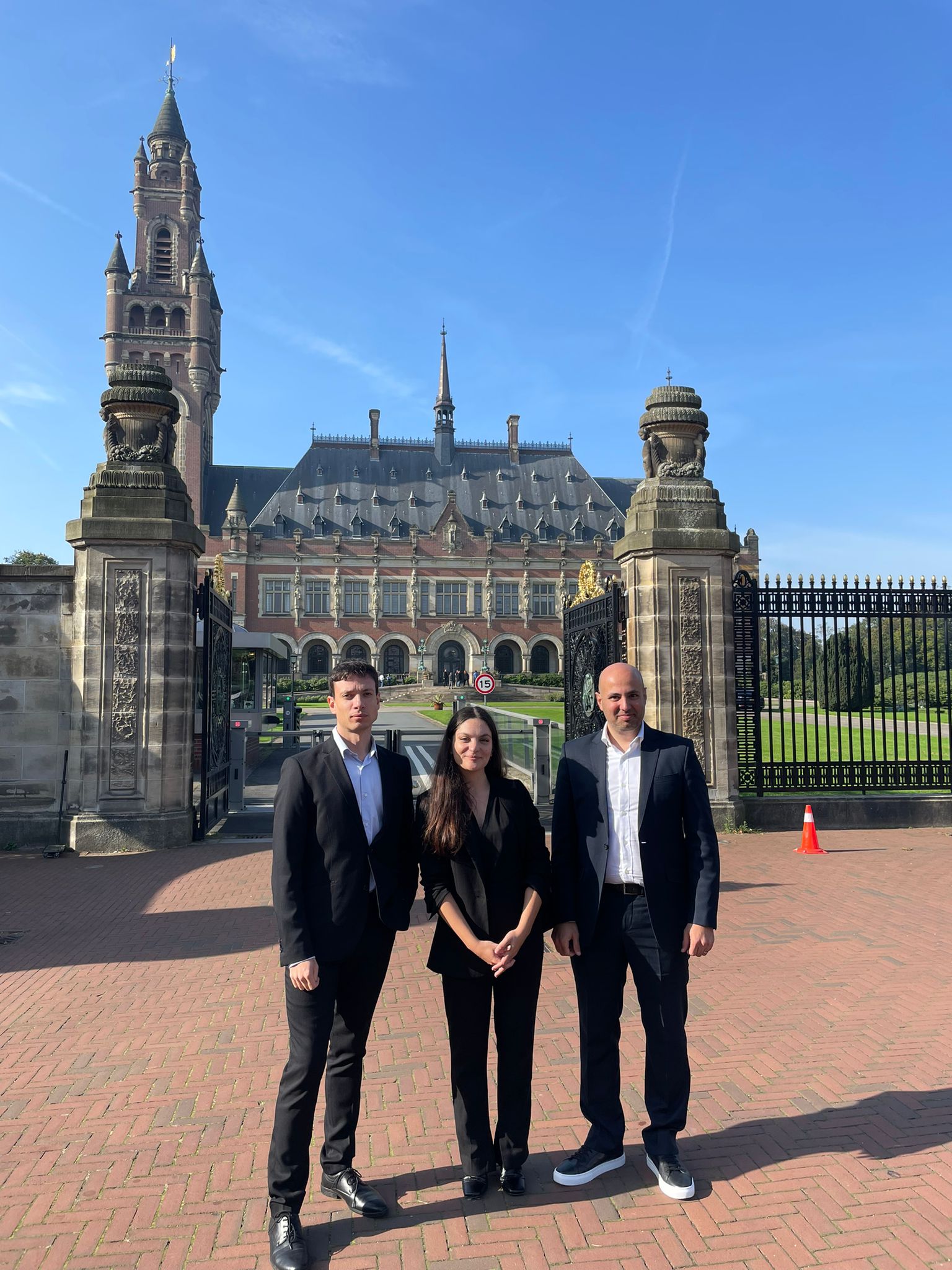
SLDP Write about the Public Hearing of Canada and the Netherlands case v. Syria before the International Court of Justice
After attending the first hearing session of Canada and the Netherlands case v. Syria before the international Court of Justice, Veronica Bellintani and Mouhanad Sharabati from the International Law Support Unit of SLDP are sharing with us the highlights of Canada and the Netherlands oral argument in an article published by Aljumhuriya
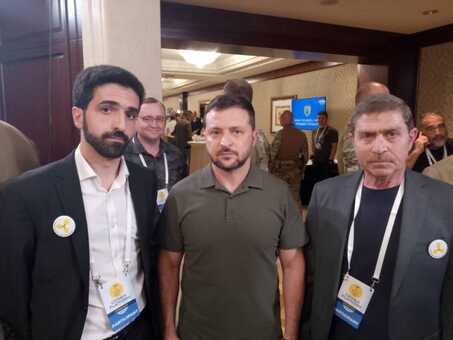
SLDP had the honor to support survivors to participate in a series of high-level official meetings & engagement with Ukrainian President Volodymyr Zelensky at The Crimea Platform to commemorate the 10th anniversary of the Chemical Weapon attacks on Ghouta, Syria
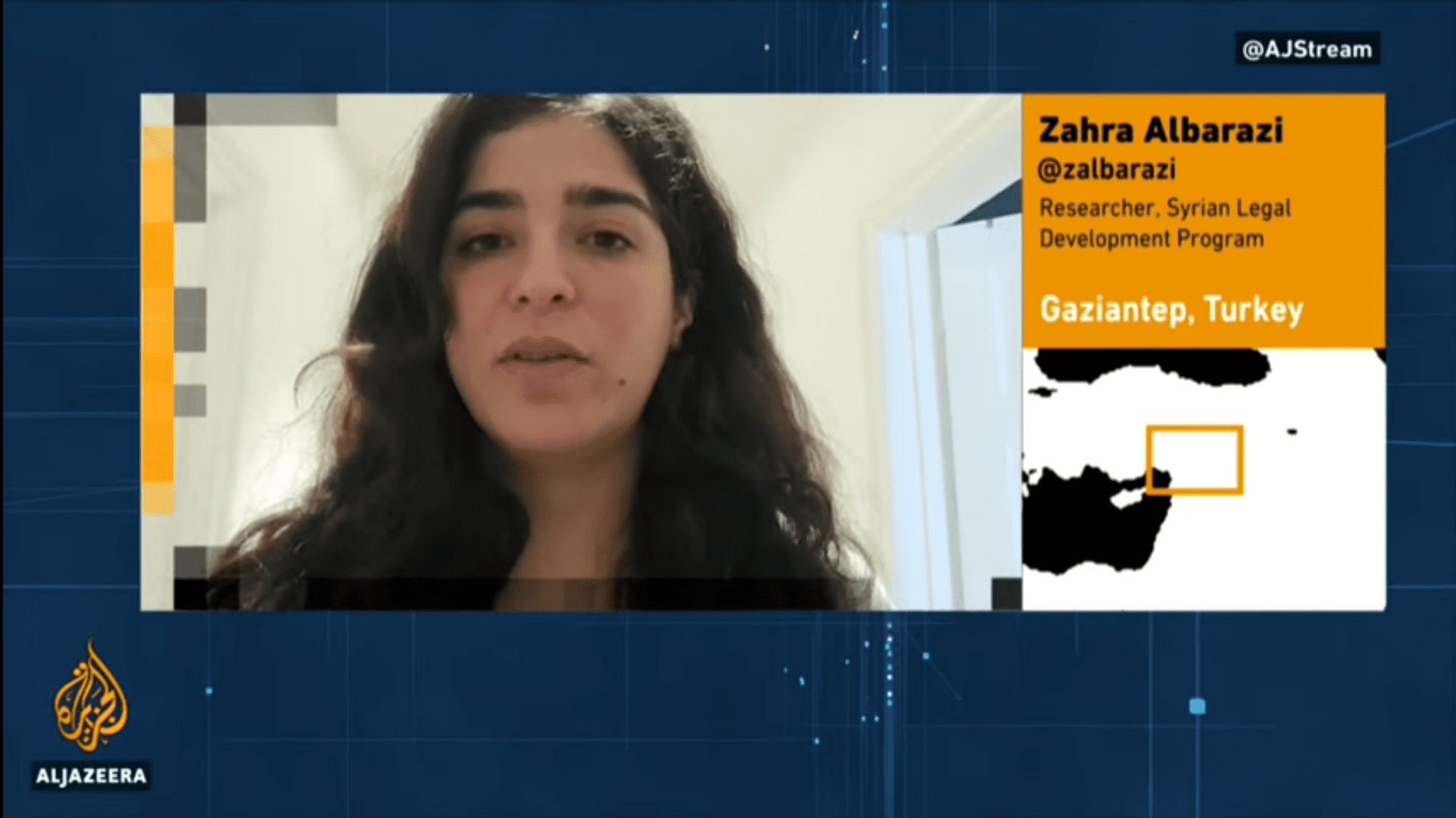
The Stream daily TV show by Aljazeera English invited SLDP to share its views on how humanitarian workers are faring in Turkey and Syria after two months of the earthquake?

The Financial Times quotes SLDP team.
Our team member Dr.Eyad Hamid, Senior researcher at the Human Rights and Business Unit, was featured at the Financial Time article Syria’s state capture: the rising influence of Mrs Assad | Financial Times (ft.com)
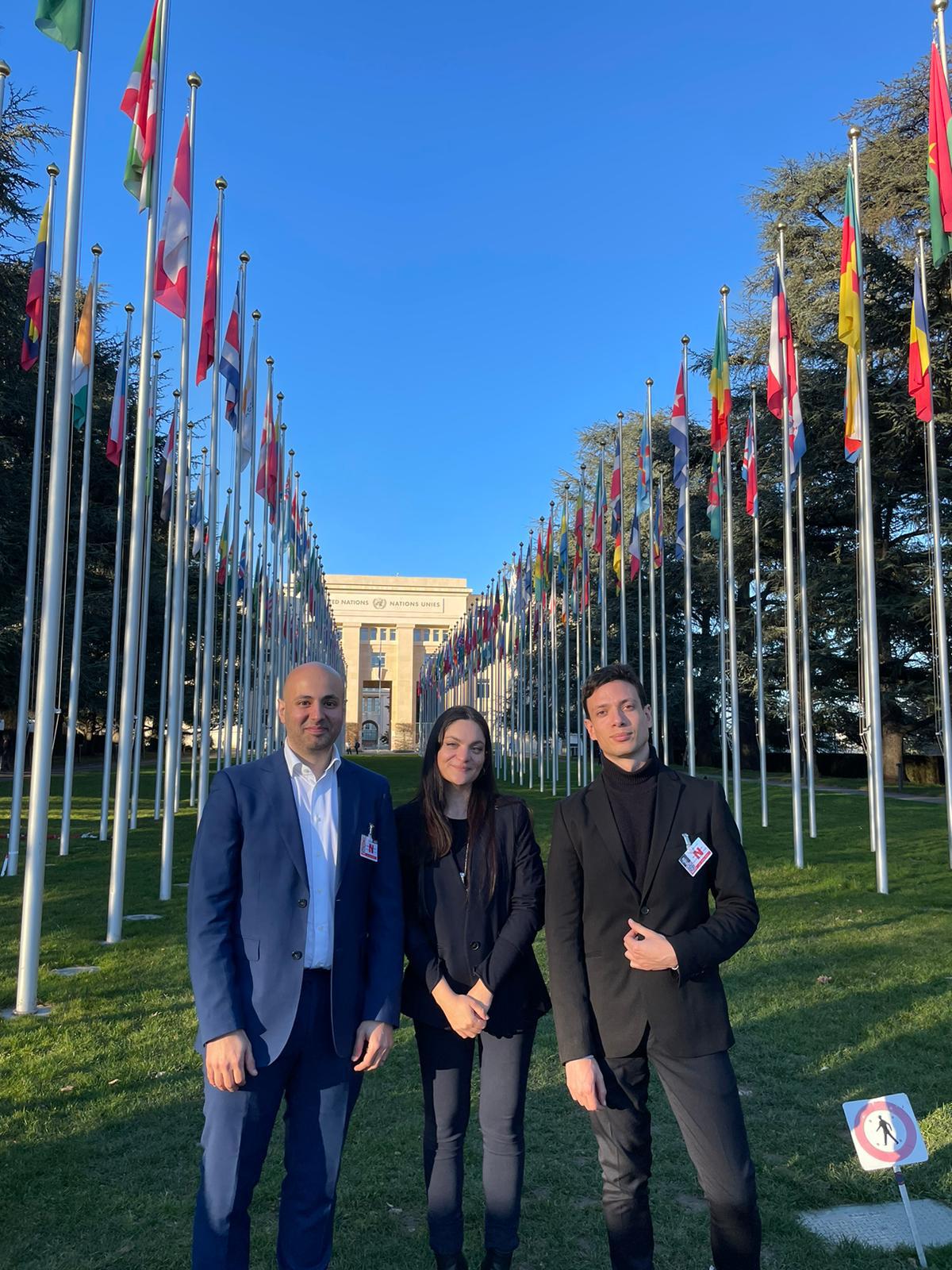
SLDP Oral Intervention during the General Debate on Item 5, during the HRC52 session.
Acknowledging the important role civil societies have within the #UN, SCM and @SyrianLDP reaffirmed their intention to continue their cooperation and urged #UNHRC to demand the respect of human rights from the different Syrian parties.
The intervention was delivered by Mouhanad SHARABATI from the Syrian Legal Development Programme (SLDP), during the General Debate session on Human Rights Bodies and Mechanisms.
Activities
2022
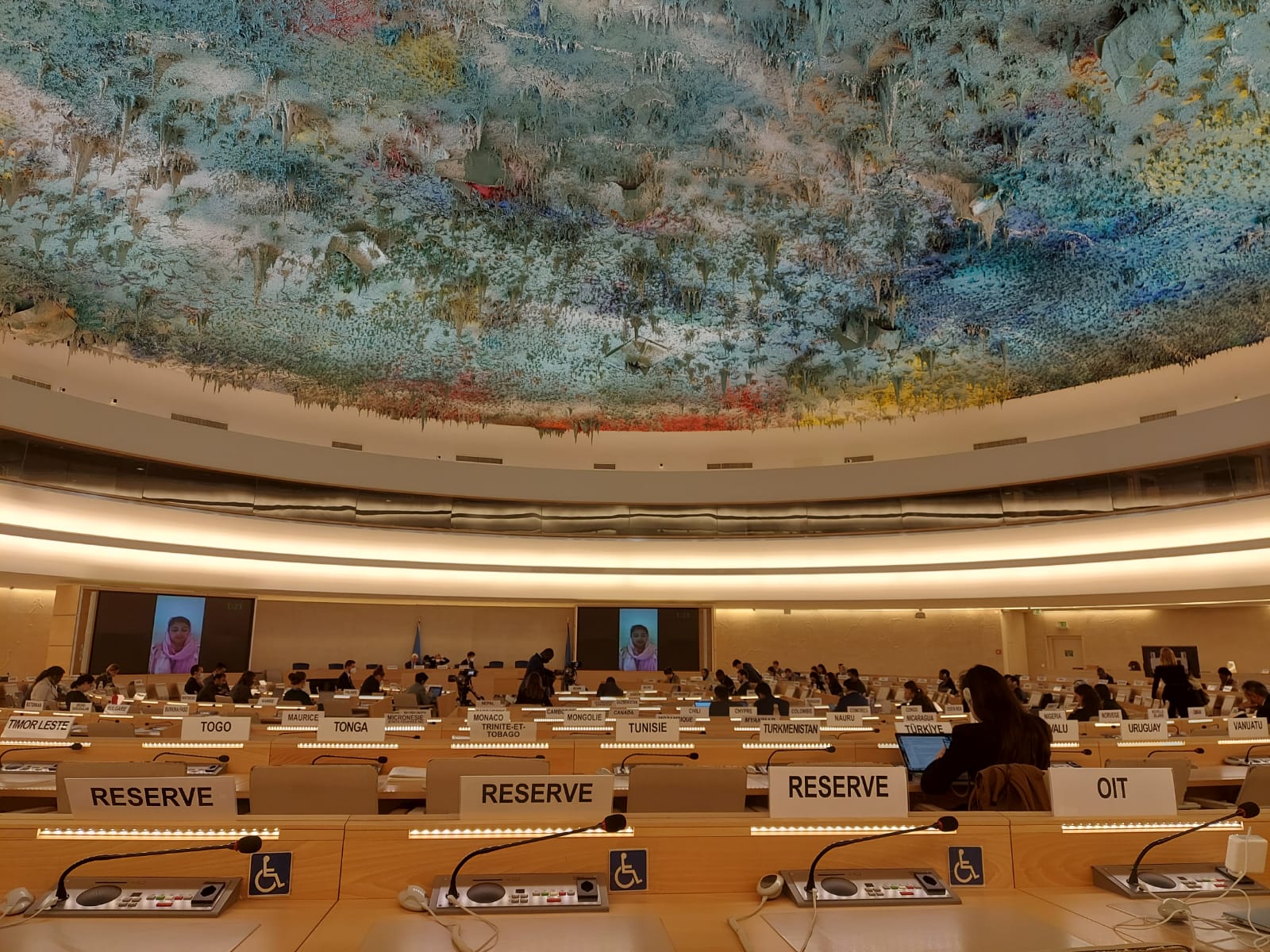
SLDP HRC51 Oral intervention/item 6 – General discussion session – Universal Periodic Review
A joint oral intervention on item /6/ of the Syrian Legal Development Programme (SLDP) and the Syrian Center for Media and Freedom of Expression (SCM), was delivered during the general discussion session of the Universal Periodic Review at the 51st session of the Human Rights Council in Geneva, by Ms. Zahra AL-BARAZI, Research Director of the Syrian Legal Development Programme on 30 September 2022.
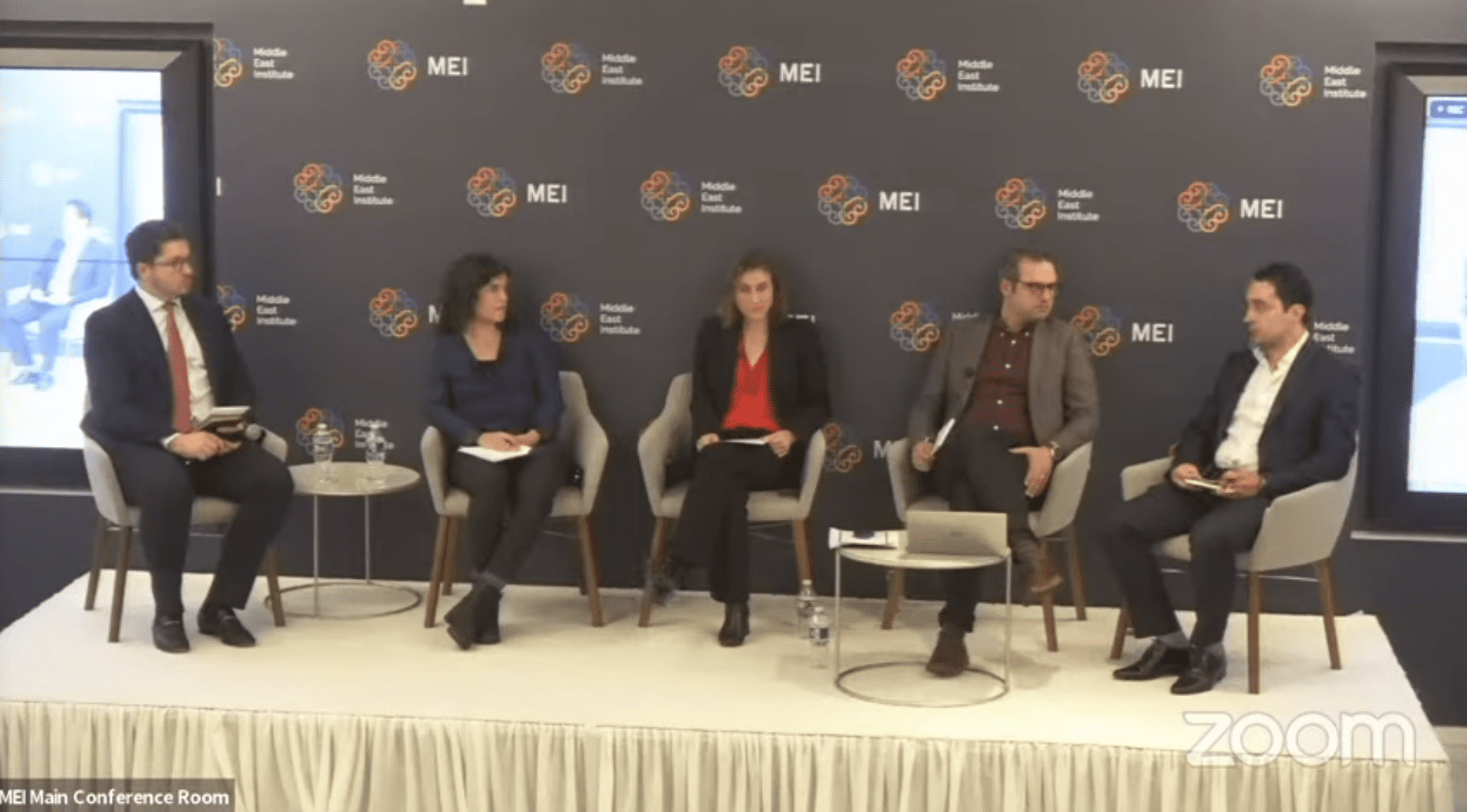
Public Launch Event of our report in Washington DC
SLDP and OPEN report: ‘UN Procurement Contracts in Syria: A ‘’Few’’ Bad Apples?’ was launched in a public event titled “The Troubling Reality Behind the UN’s Procurement Contracts in Syria” in Washington DC at the Middle East Institut.
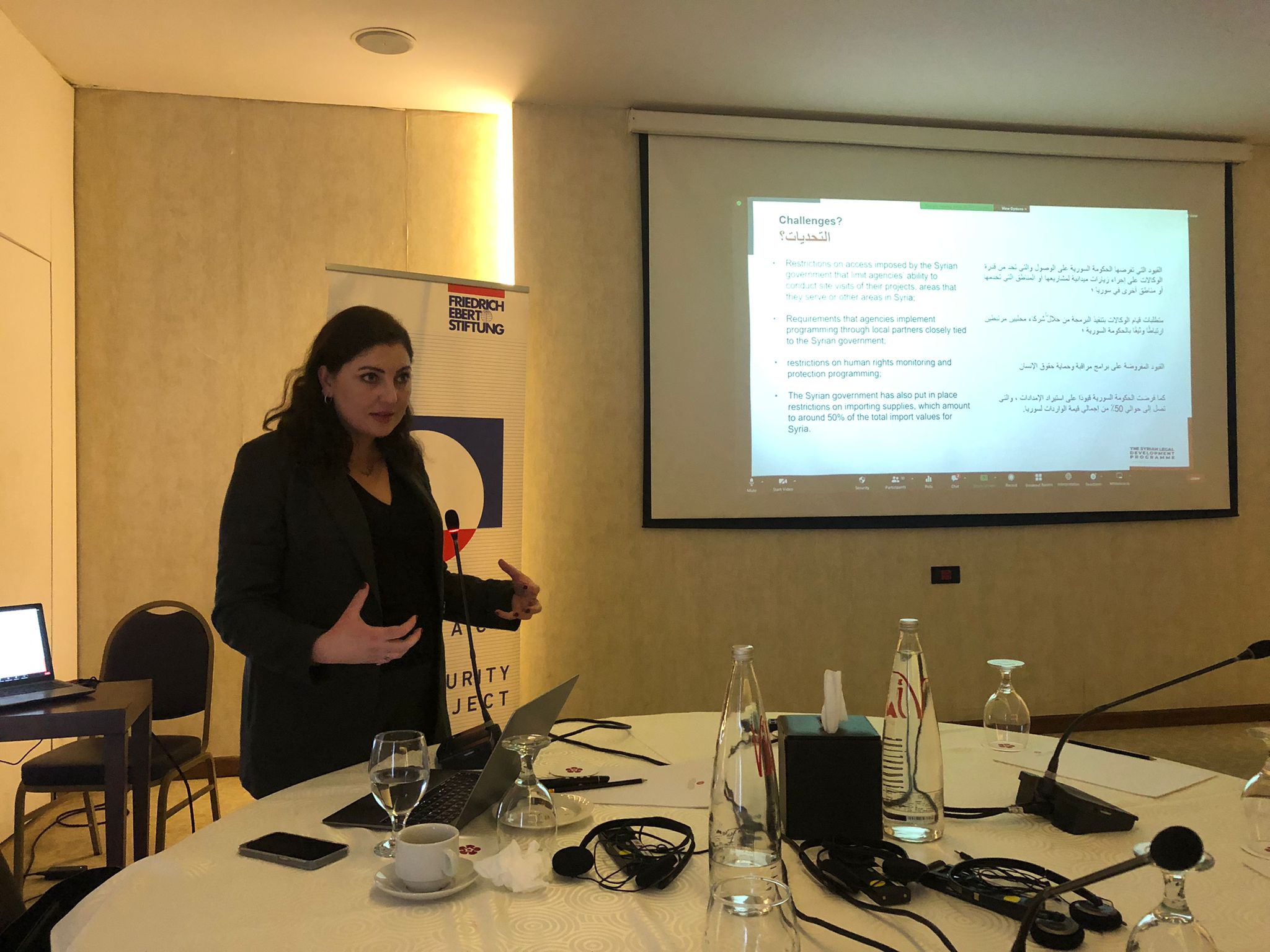
Roundtable on Business and Human Rights and Humanitarian Aid in Syria
In partnership with Friedrich-Ebert-Stiftung, the Human Rights and Business Unit organized a roundtable discussion on Business, Human Rights and aid provision in Syria to learn more about the practical steps aid organizations should take to prevent and address business-related human rights abuse in Syria and discuss best practices and different complexities that arise in the process of procurement.

New featuring of our unique report by the Associated Press
Our report’ UN Procurement Contracts in Syria: A ‘’Few’’ Bad Apples?’ was featured at the Associated Press news: Report finds sanctioned Syrians benefit from UN contracts | AP News.
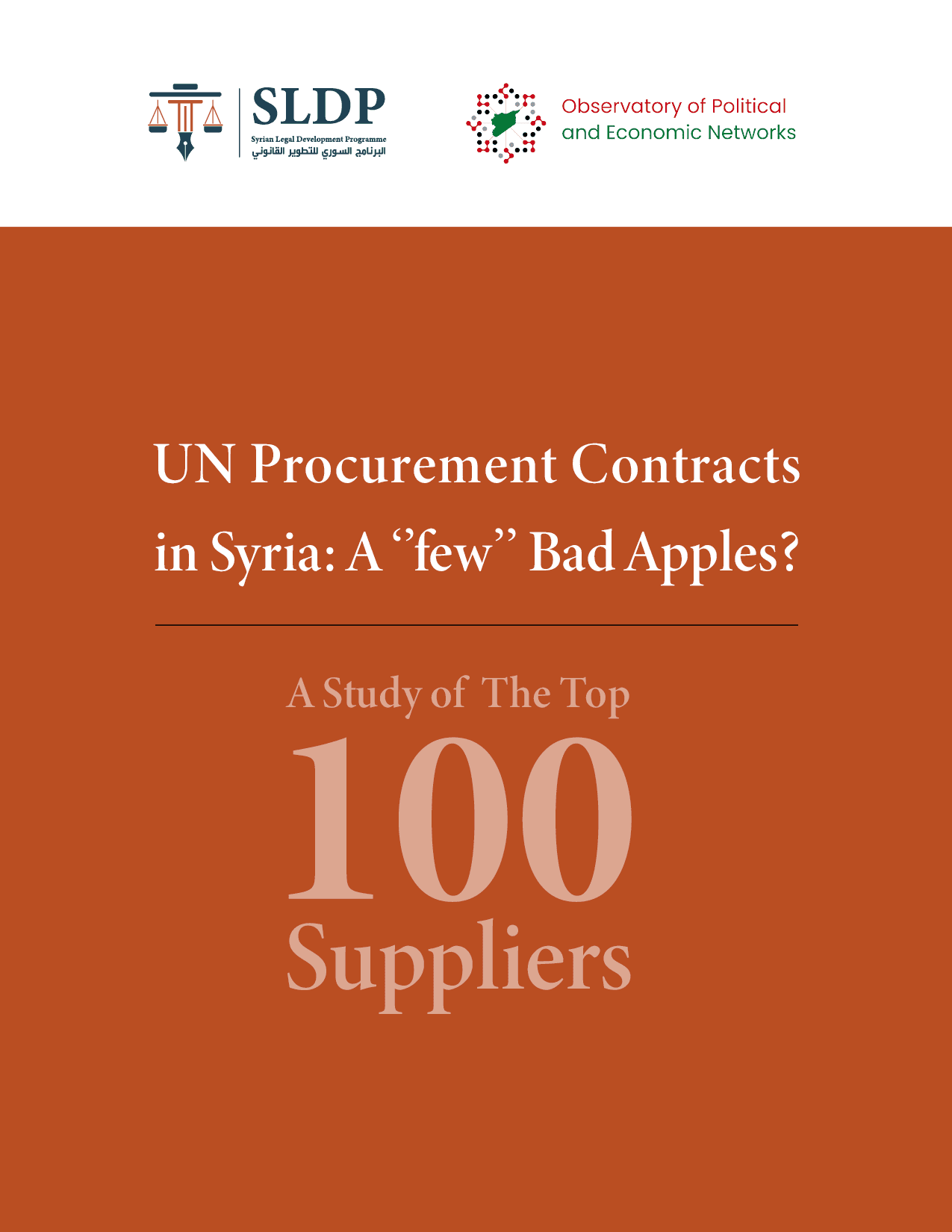
UN Procurement Contracts in Syria, A ‘’few’’ Bad Apples? A Study of The Top 100 Suppliers
The Syrian Legal Development Programme (SLDP) and the Observatory of Political and Economic Networks (OPEN) have carried out a new study which examines how private companies involved in human rights abuses benefit from the UN’s procurements from the country and the share of funding going to them.
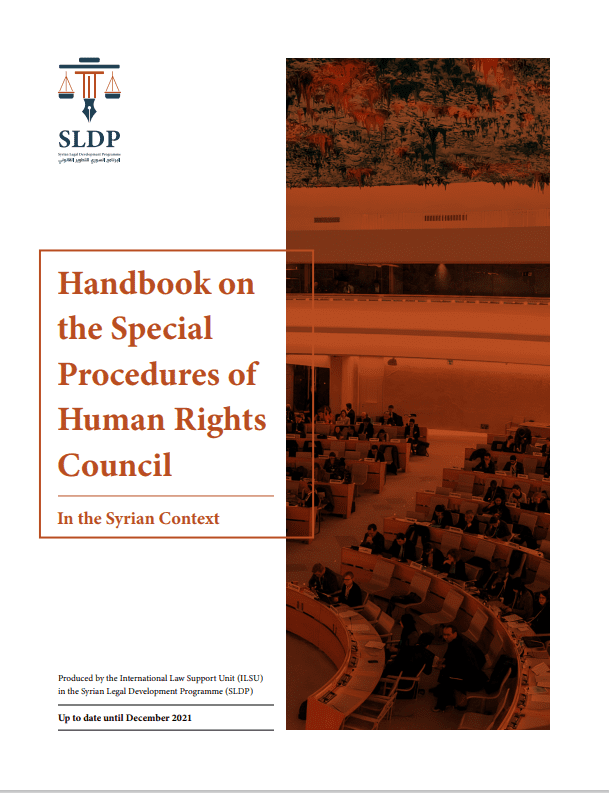
The International Law Support Unit of SLDP first audio Handbook on “The Special Procedures of the Human Rights Council in the Syrian context”
SLDP published, for the first time, an audio version of its updated Handbook on “The Special Procedures of the Human Rights Council in the Syrian context” in Arabic to be accessible to people with visual special needs.
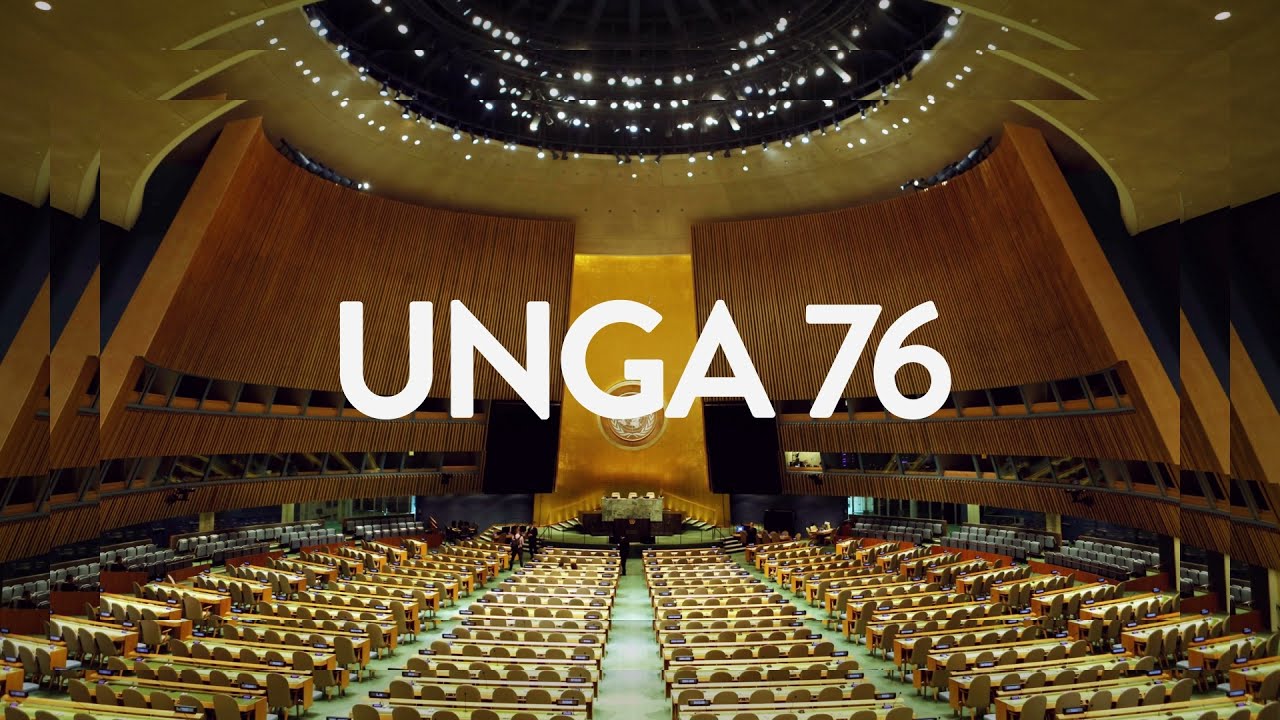
SLDP work featured in the Secretary-General’s Report on General Assembly Resolution 76/228
The work of SLDP with the Syrian victims/survivors and families’ groups was recognised in the United Nations Secretary-General’s Report (activity 26) on the General Assembly Resolution 76/228 on how to bolster efforts to clarify the fate and whereabouts of missing people in Syria and provide support to their families. The report presents a framework to improve existing mechanisms and the creation of a new institution dedicated to clarifying the fate and whereabouts of missing persons in Syria and to providing adequate support to victims and the families of those missing.
Activities
2021
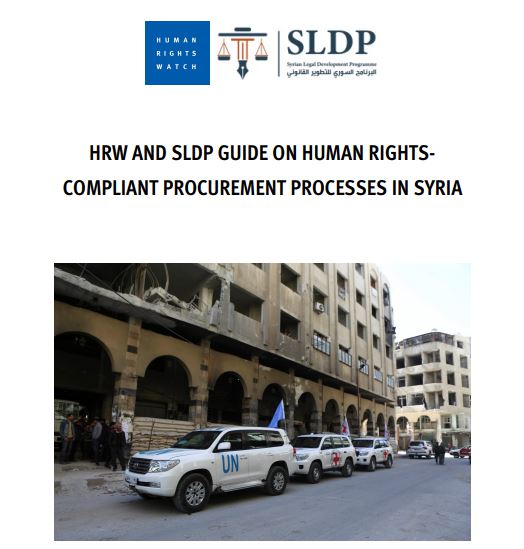
SLDP and HRW Guide on Human Rights-Compliant UN Procurement in Syria
The guide, developed by SLDP’s Human Rights and Business Unit (HRBU) in partnership with Human Rights Watch, sets out recommendations for how UN humanitarian agencies can strengthen their procurement practices from a human rights perspective. It also includes an assessment tool to help UN agencies identify Syrian suppliers at risk of involvement in conflict-related human rights abuses.
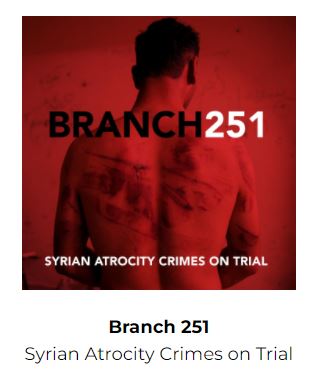
Podcast Feature: Branch 251
SLDP’s report on the effectiveness of sanctions was mentioned in the podcast, Branch 251. This podcast focuses on the worldwide first criminal trial dealing with crimes against humanity by Syrian regime officials. The episode in which our team contributed to with information attempted to address the question of who’s financing the Syrian regime.
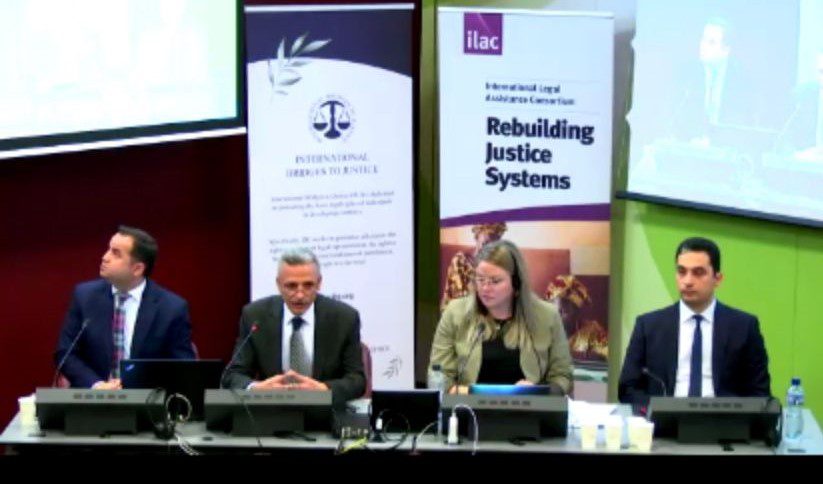
Roudtable with SLDP on violations of HLP rights in Syria
SLDP participated in a roundtable discussion in Geneva hosted by the International Legal Assistance Consortium (ILAC). The event addressed displacement, dispossession, and access to justice in Syria, shedding light on what justice actors can do to find durable solutions on the ground and to ensure greater accountability. SLDP presented on HLP rights violations and the role of the private sector in these violations. In addition, available accountability options, such as sanctions, were addressed while also showing examples of how they influenced behavior and resulted in changes on the ground.
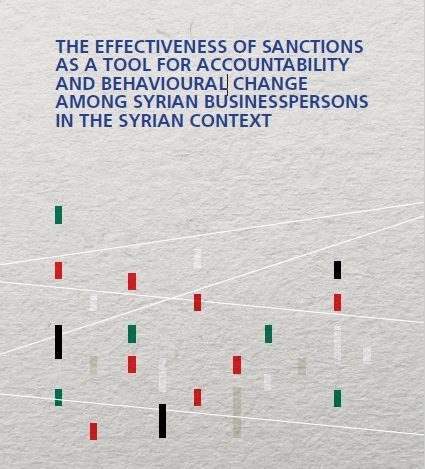
Report: The Effectiveness of Sanctions as a Tool for Accountability and Behavioural Change Among Syrian Businesspersons in the Syrian Context
SLDP’s Human Rights and Business Unit (HRBU) has carried out a study to examine the understudied issue of the effectiveness of the Syrian sanctions programmes in holding Syrian businesspeople accountable and/or changing their behaviour as individuals. The paper includes policy recommendations for state actors and INGO’s to improve the efficiency of the sanctions regime.

“Arab Gas Pipline… Economic Gateway to Normalisation with the Assad Regime”
SLDP experts were interviewed to provide insights on US policy towards Syria and the implications of the Arab Gas Pipeline on the Ceasar act.
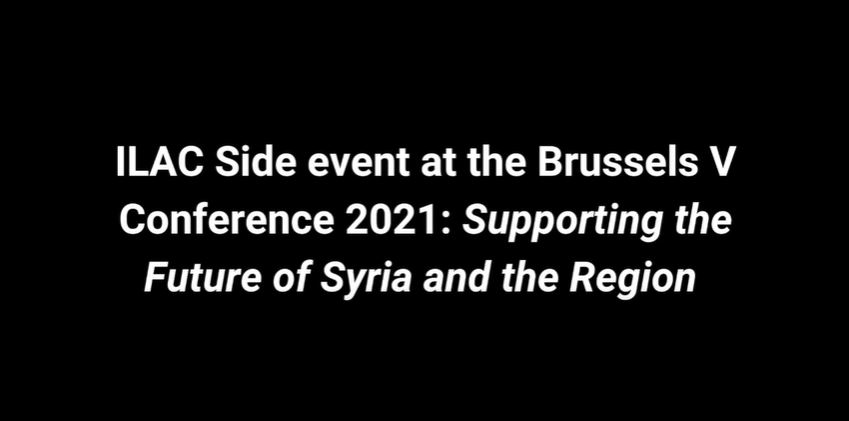
Justice systems adrift: What can be done to prevent further justice system divisions in Syria?
SLDP contributed to the roundtable discussion at Brussels V Conference: “Supporting the Future of Syria and the Region”.
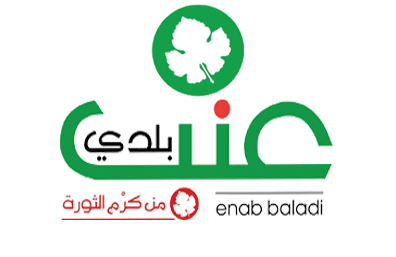
“What is the legality of appointing a minister on the sanctions lists as a representative of the World Health Organization?”
SLDP was interviewed by Enab Baladi to provide a commentary on the election of a Syrian Official to the WHO.

“Three legal indicators reveal the feasibility of Canada’s move to hold the Assad regime accountable”
SLDP was interviewed by Orient News to provide a commentary on recent developments to hold the Assad regime accountable.
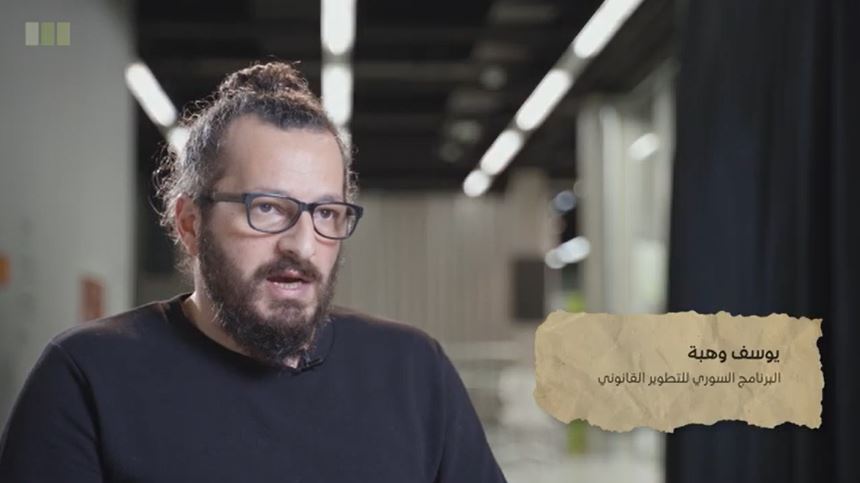
Discussion: Landmark Trials in Europe on Syria
The International Law Support Unit of SLDP participated in “Landmark trials in Europe on Syria” series, organised by Heinrich Böll Foundation Beirut, to discuss the steps taken toward criminal accountability on Syria, particularly in Europe.
Activities
2020
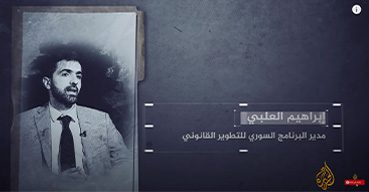
Al Jazeera Documentary, “The Fortune of the Castle: A Financial Network Ran by the Syrian Regime to Circumvent Western Sanctions”
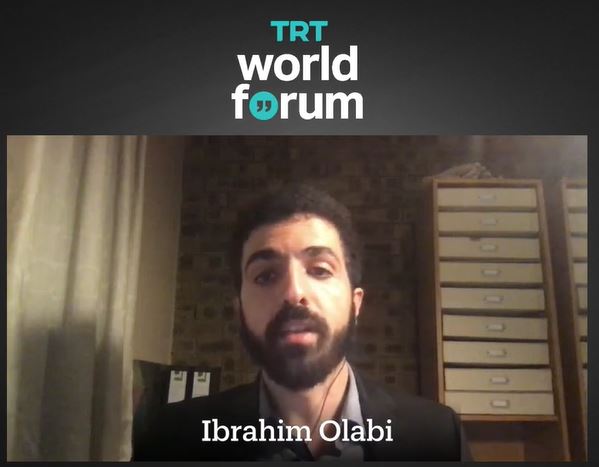
War and Disease: Living with Covid-19 in Syria and Yemen
SLDP contributed to the roundtable organised by TRT World Forum “War and Disease: Living with Covid-19 in Syria and Yemen”. SLDP discussed the effects of COVID on the humanitarian situation and conflict in Syria.
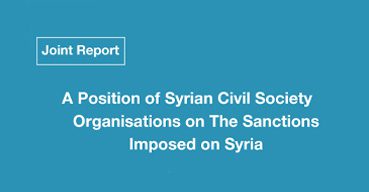
A Position of Syrian Civil Society Organisations on The Sanctions Imposed on Syria
SLDP consulted 9 Syrian civil society organizations to draft a Syrian civil society position paper on sanctions and unilateral coercive measures. The team then consulted with Syrian civil society to receive feedback on the sanctions position paper for Syrian civil society. The sanctions paper now has 20 signatures and is receiving more. This paper will allow civil society members to engage in advocacy on sanctions in Syria in a well informed and cohesive manner.

Policy Brief: The Role of Syrian Businesses in Conflict-related Human Rights Abuses: Options for Accountability
SLDP drafted two policy papers on the role of businesses in human rights abuses in Syria and on the ties between business, migration and HLP rights abuses in the Syrian context. Each policy paper includes a set of recommendations for state actors including state actors, INGOs, UN humanitarian agencies, businesses and institutional investment funds.
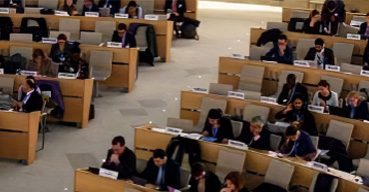
Guide On The Special Procedures Of The Human Rights Council In The Syrian Context
ILSU produced a practical guide, in Arabic and English, on the mandate and engagement with the most 15 relevant Human Rights Council Special Procedures to the Syrian context. The guide provides an informative background about each Mandate, its involvement and contribution to the Syrian context, and practical guidance on its work methods and how SNGOs can strategically engage with it.
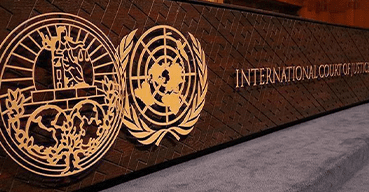
Webinar: Interactive Session about Netherlands’ Step toward Syria
ILSU, in collaboration with Guernica 37, organized a webinar on the occasion of the Netherlands’ announcement its intention to submit to the ICJ the issue of Syria violations of its obligations under the Convention Against Torture. About 120 persons attended the webinar which addressed the legal and technical aspects of this step. The webinar aimed as well to contribute to managing the expectations of the audience while clarifying the potential positive and strong contribution of the step to the Syria-related accountability endeavors. In the same context, ILSU produced a Q&A paper – including 37 questions – addressing most of the information relevant to this step.

Webinar: Informative Session on Legal Concepts and Contexts
ILSU organized a special webinar to respond to SNGOs’ requests and questions about several legal concepts and contexts. The webinar, attended by 45 SNGOs and individuals, addressed about 4 legal terms and concepts of which many where sometimes misused or misunderstood. The webinar included Q&A sessions following each theme, and ILSU developed and shared a comprehensive paper on the addressed concepts with all SNGOs on its list.
Activities
2019
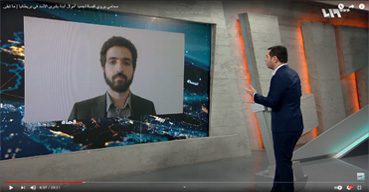
A Lawyer Tells the Story of Freezing the Money of Bushra Al-Assad’s Daughter in the United Kingdom
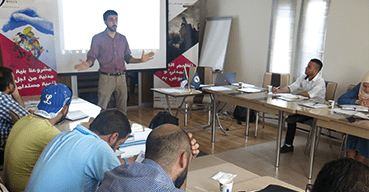
ILSU Supporting Syrian Civil Society Organizations on International Law
Throughout 2019, ILSU held about 40 training and information sessions addressing a wide range of complex and niche areas of Syria-related international law. The sessions addressed – among others – topics of IHL, IHRL, ICL, Refugee Law, accountability and justice, and engagement with UN mechanisms and other international actors. All the sessions incorporated practical advocacy components to enable the SNGOs to utilize the acquired legal knowledge in their plans and activities.
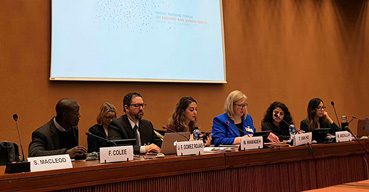
HRBU in the Business and Human Rights Forum
The Human Rights and Business Unit (HRBU) within the Syrian Legal Development Programme participated in the “UN Forum on Business and Human Rights” in November 2019 in Geneva, an event guided and chaired by the UN Working Group on Business and Human Rights and organized by its Secretariat at the Office of the UN High Commissioner for Human Rights (OHCHR).
Activities
2018
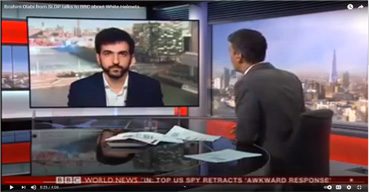
Interview: White Helmets Evacuation from Syria
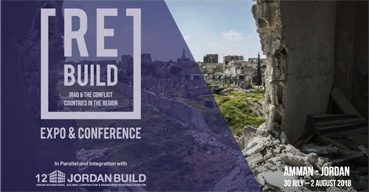
SLDP, GRC Attend Jordan Reconstruction Conference
On 30 July- 2nd August 2018, Jordan International Building, Construction & Engineering Industries Exhibition hosted a conference on rebuilding Iraq and other conflict countries in the region, including Syria. The conference hosted businesses from all over the world across all industries regarding networking and opportunities for involvement in reconstruction in the region as well as issues involved in participation in reconstruction. In addition to businesses, the conference was well attended by government representatives, including the Jordanian Prime Minister Omar Al-Razzaz.
The conference included discussions on potential partnerships and other opportunities for involvement in reconstruction, including industry-specific joint reconstruction efforts. Attendees also discussed mechanisms for financing, managing, and implementing reconstruction, including mechanisms for interacting with different donors and local civil society. The conference also discussed the role that refugees may play in reconstruction. SLDP Executive Director, Ibrahim Olabi attended the conference in partnership with Global Rights Compliance (GRC). Scott Martin of GRC spoke on a panel on 1 August at the conference about the various international legal risks of funding or participating in reconstruction in Syria. Particularly, Martin discussed the potential for business complicity in international crimes in Syria and the importance of compliance with international law to protect businesses from legal liabilities. The panel was followed by questions and answers. SLDP and GRC hope to continue to have a presence at events related to Syria’s reconstruction where we may raise awareness about the potential for business involvement in human rights violations and international crimes in Syria’s reconstruction.
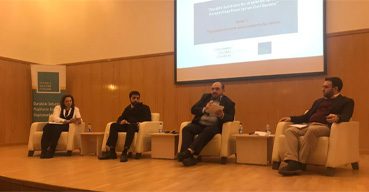
SLDP participates in “Durable Solutions for displaced Syrians: Perspectives from Civil Society” conference
SLDP’s Director, Ibrahim Olabi, was a panellist at the “Durable Solutions for displaced Syrians: Perspectives from Civil Society” on November 29, 2018, in Amman organized by the Durable Solutions Platform. The conference focused on the future of Syria in terms of transition, reconstruction, and return, in addition to Syrian refugees in the region and their prospects.
The conference gathered more than 80 members of Syrian civil society, researchers, experts and practitioners from the region in addition to regional and international stakeholders such as organizations, donors, state representatives and academics.
SLDP provided a presentation on issues around reconstruction, Justice, Housing Land and Property rights, and Law No. 10 within “The future of Syria: transition, reconstruction and return” panel. Key points raised focused on the role businesses, including Jordanian businesses, in not contributing to crimes committed in Syria or supporting the war criminals that committed them. It also shed light on the importance of not allowing the rhetoric of reconstruction to take away from the need for accountability and justice.
The conference was hosted by the Durable Solutions Platform (DSP), an initiative set up by Danish Refugee Council, International Rescue Committee, and Norwegian Refugee Council in 2016 aiming to generate evidence and promote informed discussions on long-term solutions for displaced Syrians in the region.
Participating in this panel was a part of SLDP continuous advocacy with various stakeholders around human rights and business issues in the Syria context.
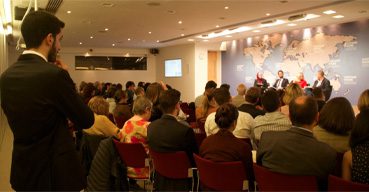
Report: Launch event of the Human Rights and Business Unit at Chatham House
Although the conflict in Syria continues unabated, there has already been a shift of focus on Syria’s reconstruction. Many international actors have refused to contribute to Syria’s reconstruction until a political transition is underway, while some are unsure of how to proceed, and others have expressed interest. While Syrians are entitled to their country to be rebuilt, participating in reconstruction in Syria may support the narrative that the conflict is over and thus weakens the calls for accountability and justice. It may further provide legitimacy to the current Syrian Government, who has been achieving military victories and presents itself as the official potential reconstruction partner, while also being the main perpetrator of war crimes and rights abuses throughout the conflict. In addition, reconstruction creates ample opportunities for further violations of human rights as well as potentially endorsing other crimes already committed, such as forced displacement.
On 25th of May 2018, at Chatham House, the Syrian Legal Development Programme held an event to launch their Human Rights and Business Unit, focusing on human rights in the context of reconstruction in Syria. The founder of the Syrian Legal Development Programme, Ibrahim Olabi, chaired the first panel while Noor Hamadeh, the head of the Human Rights and Business Unit, chaired the second. Ibrahim outlined the aims and objectives of the newly established unit, which received support for its first phase from the Swiss Federal Department of Foreign Affairs. The unit engages with policymakers and local stakeholders, builds the capacity of SNGOs, monitors business activity from the lens of human rights and publishes thematic and periodic reports. He made it clear that this event comes at a very important and sensitive time for Syria, and that the panel will cover the issues from the perspective of human rights, politics, economics as well as hearing from Syrians.
The event aimed to shed light on risks, opportunities and challenges that should be taken into account by various stakeholders when approaching the issue of reconstruction.
Two panels discussed the theme, Reconstruction between political pragmatism and human rights idealism. The first panel was with Maria Alabdeh (Syrian NGO), Jean-François (EU) Hasperue, and Toby Cadman (Barrister). The second panel had Wayne Jordash QC (Barrister), Fionna Smyth (Humanitarian, Oxfam), and Joseph Daher (Economist).
The event was attended by governments, businesses, think tanks, NGOs and universities.
Activities
2017
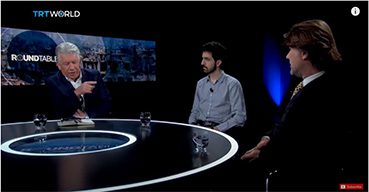

2017 SLDP contributes to an assessment conducted by ILAC
SLDP contributed to the research for a recently published International Legal Assistance Consortium (ILAC) assessment on justice sector institutions and judicial processes in Syria. Using its access and legal background, SLDP conducted desk research into court systems as well as multiple interviews with judges in non-state-controlled areas of the country to support ILAC’s research and analysis. This topic represents a particular point of interest and continued engagement for SLDP’s focus on rule of law in Syria.
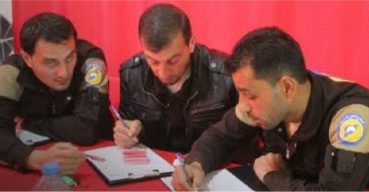
A Training for Syrian Civil Defense on International Law
As the work of the Syrian Civil Defence (SCD) was becoming more complex due to use of several prohibited weapons and the interference of multiple factions in the Syrian conflict, they requested more knowledge on their rights and obligations under International Law. In 2017 SLDP delivered training for SCD members on International Humanitarian Law and Humanitarian Principles and how these topics relate to their work. The training was tailored to the needs of the SCD and aimed to create IHL focal points within the organization to sustainably increase IHL knowledge among its team.
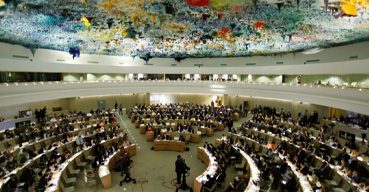
SLDP Trains and Advises SNGOs During the Geneva Talks
During the Geneva Talks, SLDP Syrian humanitarian NGOs to train and advise them on international law matters. The aim was to improve their knowledge of legal concepts relevant to the Syrian context and to improve their ability to effectively explain and negotiate when engaging with States and UN officials. The training included for example understanding international human rights law, and how UN mechanisms and tools function and how they can be utilized. SLDP accompanied the SNGOs into the UN and provided advice on ad hoc matters. This form of guidance that we offer continues through our work at our ILS unit.
Activities
2016
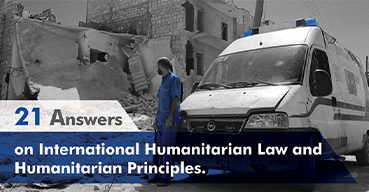
21 Answers on International Humanitarian Law and Humanitarian Principles
In 2016, SLDP, supported by the INGO GOAL and NGO Forum, developed a handbook in Arabic and English for humanitarian workers in Syria. This handbook offered answers to 21 frequently asked questions regarding International Humanitarian Law in the Syrian context. The aim was to offer those working on the ground guidance on some main legal questions considered to be vital, practical, and controversial during their humanitarian work.
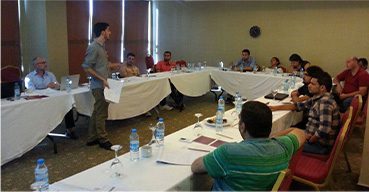
SLDP Assists IRC in The Documentation Crisis in Northern Syria
In 2016 we assisted with an assessment on Personal Status Documentation in Northern Syria. This project was requested by the United Nations High Commissioner for Refugees and implemented through the International Rescue Committee. For this project, SLDP carried out research and analysis of data on access to CRVS documentation by those living in non-state areas in Syria. The aim was to highlight the challenges of individuals obtaining essential documents and to offer recommendations on how to overcome these challenges found in the report
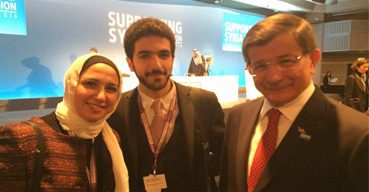
SLDP invited by Heads of States and UN Secretary-General to the Donors’ Conference
On the 4th of February, SLDP received an invitation from the UK`s Prime Minister, the Amir of Kuwait, the German Chancellor, the Norwegian Prime Minister and the UN Secretary-General to attend the Donor conference held in London. SLDP engaged with a number of NGOS and State participants in order to raise awareness of addressing legal issues in the Syrian conflict.

SLDP Supporting Syrian Civil Society Organizations in Understanding Counterterrorism Laws
Within the framework of supporting Syrian civil society especially humanitarian actors on the ground in fully understanding how the increase in domestic and international counterterrorism laws affects the sustainability of humanitarian work in Syria’s dynamic operating environment, SLDP developed a training to interpret domestic and international counterterrorism laws, their intersection with IHL and the humanitarian principles, and their implications on the work of civil society organizations. The training included an in-depth discussion and real-life examples from the Syrian context, alongside an explanation of counterterrorism laws related to each organization’s work.

SLDP Designs and Trains on International Criminal Law
The “eyeWitness” tool is a mobile application produced by the International Bar Association to increase legal usage of documented atrocity crimes. Upon the request of the International Bar Association, SLDP designed and delivered training to 40 Syrian humanitarian, human rights and media organisations on international criminal law and standards of evidence in courts. The aim was to ensure that this tool was used in the most effective manner possible and to increase the chance of evidence being viable in future courts.
Activities
2014

SLDP Initiates a Project on Fair Trial Guarantees for Non-State Actors’ Courts
In 2014 SLDP, alongside various partners, initiated a project on fair trial guarantees for non-state actors’ courts. This was carried out in collaboration with the Manchester International Law Centre and the participants of the workshops included legal professionals, academics, representatives of intergovernmental and supranational bodies and of governments. This project was carried out during a period in Syria where non-armed actors were assuming state functions, often with limited experience. The aim therefore of this project was to guide these court initiatives to ensure their work was regulated justly and that the rights of citizens at the court were protected.


